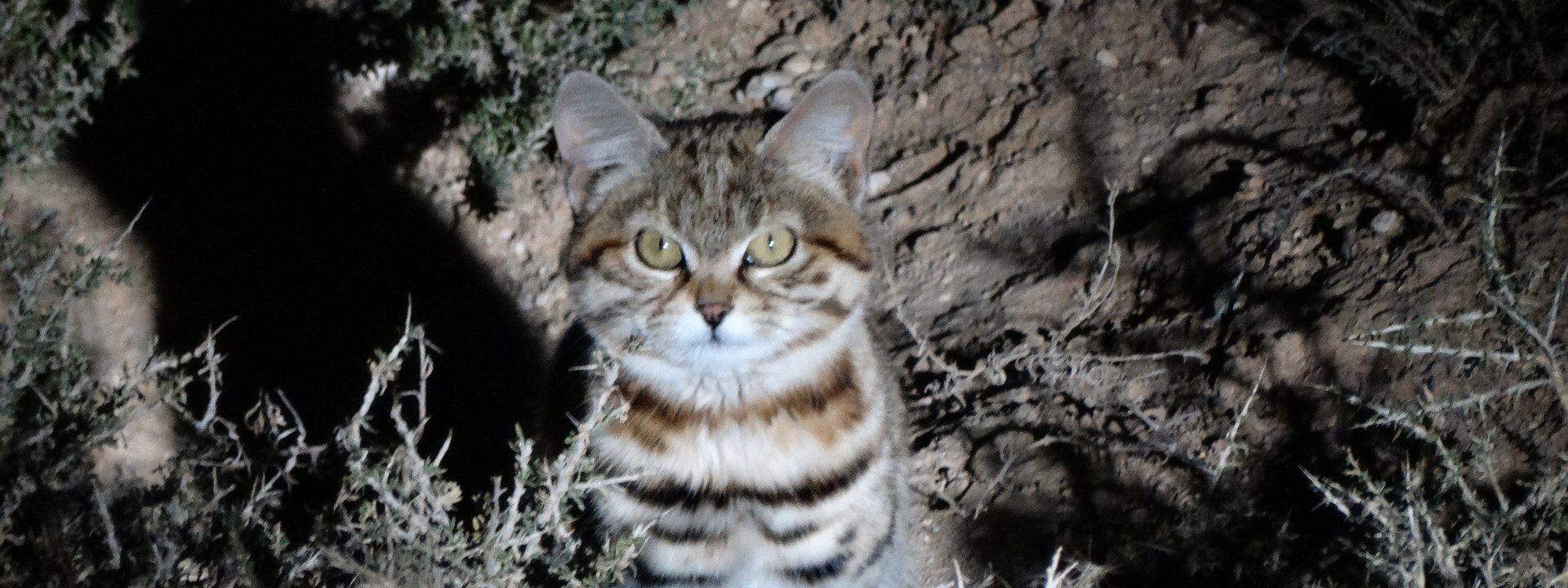South Africa
Mammals and Birds
A speciality trip looking for some of South Africa's tricky mammals plus a great selection of birds
This exciting tour focuses on three main areas with an exceptional selection of mammals. We hope to see in excess of 50 species (67 were seen on our 2022 trip), with our primary focus being on some of South Africa’s rare and elusive mammals including Black-footed Cat, Aardvark, Aardwolf, Cape Porcupine, Cape Clawless and Spotted-necked Otter and African (Cape) Hunting Dog. There are also opportunities to see a number of Africa’s ‘Big 5’, as well as a good variety of predators, more widespread African mammals and around 250 species of birds.
The tour starts with three nights to the east of Cape Town where we hope to see Southern Right Whales, as well as some fantastic land mammals including Bontebok and Cape Mountain Zebra. This area is also home to some localised birds and those we would expect to find include African Penguin and Cape Rockjumper.
We will then move on to the Kimberley area where the night spotlighting can be truly exceptional with the chance of a number of enigmatic nocturnal mammals. We hope these will include Black-footed Cat, the recently split African Wildcat, Bat-eared Fox, Aardvark, Aardwolf, Cape Porcupine and Springhare, with the possibly of South African Hedgehog and Caracal. During the day, we will visit sites for otters and a variety of ungulates including Black Wildebeest.
We will then visit two or three localities not far from Johannesburg where we will focus on looking for Otters, Black Wildebeest, Blesbok and Mountain Reedbuck along with many other species.
The final leg of the trip in Madikwe Game Reserve in northern South Africa on the border with Botswana will focus on looking for African Wild Dog, Brown Hyaena and other carnivores including Lion, Leopard and Cheetah. We also expect to see a good variety of ungulates including the remaining members of the African ‘Big 5’, Cape Buffalo, White (and hopefully) Black Rhinos plus African Savannah Elephant, together with a good selection of birds hopefully including African Finfoot.
It is important to stress, however, that the main focus of this trip will be mammals so if you are looking for a bird tour to South Africa, then we suggest this may not be for you, although we will try to accommodate the wishes of birders as far as possible.
There is no obligation on any tour participant to take part in every excursion but we strongly recommend that you do so. It is better to catch up on your sleep in the back of the vehicle where we can wake you if we see something good, than in the hotel room where you might miss something.
Tour Highlights
- A 16-day mammals-focussed tour looking for some of the tricky species at three varied sites in South Africa
- Begin on the coast near Cape Town looking for Southern Right Whales, Bontebok, Cape Mountain Zebra plus African Penguin and Cape Rockjumper
- Three nights in the Kimberley area staying at Marrick Game Farm with night drives and day safaris
- Look for an exceptional range of nocturnal mammals including Black-footed Cat, Aardvark, Aardwolf and Cape Porcupine
- Visit sites near Jo'burg where there are chances for Black Wildebeest, Blesbok and Cape Clawless and Spotted-necked Otters
- Travel on to Madikwe Game Reserve where the possibilities include African Wild Dog, Brown Hyaena, White Rhino plus Africa's "Big 5"
- Expect to see a great range of African birds potentially including Secretarybird, Kori Bustard, Spotted Eagle-Owl, Swallow-tailed Bee-eater, Crimson-breasted Shrike and Quailfinch
- Led by WildWings leader and African mammal expert Ewan Davies
Outline Itinerary
-
Evening flight from London Heathrow
-
Arrive Cape Town. Transfer to Hermanus
-
Morning Hermanus. Afternoon transfer to De Hoop birding on route
-
De Hoop
-
Morning transfer to Cape Town. Afternoon flight to Kimberley and transfer to Marrick
-
Full days at Marrick and Warrenton
-
Flight to Johannesburg and transfer to Heidelburg. Late afternoon Suikerbosrand
-
Suikerbosrand and Marievale
-
Transfer to Madikwe
-
Madikwe
-
Depart Madikwe, transfer to Johannesburg for flight home
-
Arrive London Heathrow
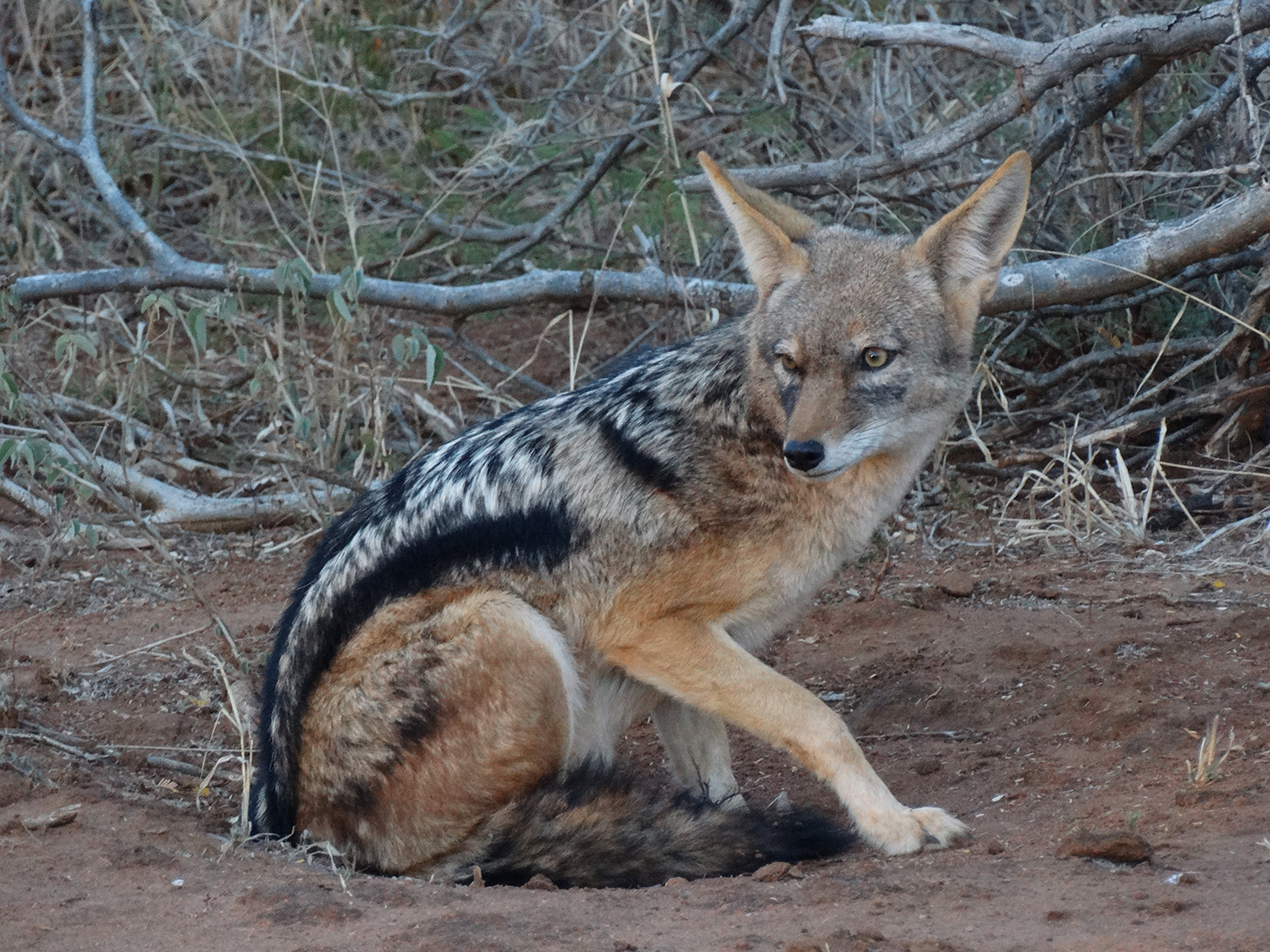
This exciting tour focuses on three main areas with an exceptional selection of mammals. We hope to see in excess of 50 species (67 were seen on our 2022 departure), with our primary focus being on some of South Africa’s rare and elusive mammals including Black-footed Cat, Aardvark, Aardwolf, Cape Porcupine, Cape Clawless and Spotted-necked Otter and African (Cape) Hunting Dog. There are also chances for a number of Africa’s ‘Big 5’, as well as a good variety of predators, more widespread African mammals and around 250 species of birds.
The tour starts with three nights to the east of Cape Town where one of our main goals is to get some great views of the Southern Right Whales which can often be found close inshore. There should also be some fantastic land mammals including Bontebok and Cape Mountain Zebra and the area is also home to some localised birds and those we would expect to find include African Penguin and Cape Rockjumper.
We will then move on to the Kimberley area where the night spotlighting can be truly exceptional with the chance of a number of enigmatic nocturnal mammals. We hope these will include Black-footed Cat, the recently split African Wildcat, Bat-eared Fox, Aardvark, Aardwolf, Cape Porcupine and Springhare, with the possibly of South African Hedgehog and Caracal. During the day we will visit sites for otters and a variety of ungulates including Black Wildebeest.
We will then visit two or three localities not far from Johannesburg where we will focus on looking for Otters, Black Wildebeest, Blesbok and Mountain Reedbuck along with many other species.
The final leg of the trip in Madikwe Game Reserve in northern South Africa on the border with Botswana will focus on looking for African Wild Dog, Brown Hyaena and other carnivores including Lion, Leopard and Cheetah. We also expect to see a good variety of ungulates including the remaining members of the African ‘Big 5’, Cape Buffalo, White (and hopefully) Black Rhinos plus African Savanna Elephant, together with a good selection of birds hopefully including African Finfoot.
It is important to stress, however, that the main focus of this trip will be mammals so if you are looking for a bird tour to South Africa, then we suggest this may not be for you, although we will try to accommodate the wishes of birders as far as possible.
There is no obligation on any tour participant to take part in every excursion but we strongly recommend that you do so. It is better to catch up on your sleep in the back of the vehicle where we can wake you if we see something good, than in the hotel room where you might miss something.
The key locations:
The Cape – Our trip will start near Cape Town with visits to Hermanus and De Hoop. Both these areas are well-known calving grounds for the Southern Right Whale with Hermanus considered one of the premiere whale-watching locations in the world. We should get excellent views of the whales and whilst at De Hoop will hope to find Bontebok, Cape Mountain Zebra, Grey Rhebok and Baboon with chances for Caracal and Leopard. We will also look for some of the speciality birds of this region and these could include African Penguin, Bank Cormorant, Cape Sugarbird and Southern Double-collared Sunbird.
Kimberley Area – We will visit several sites in the Kimberley area including Marrick Game Farm where we plan to stay for three nights. Marrick is well-known for its night drives when we hope to see Black-footed Cat, Aardvark, Aardwolf, Cape Porcupine, Smith’s Red Rock Rabbit and a number of commoner species. During the day we will look for a good selection of ungulates including Black Wildebeest, along with smaller species such as Yellow Mongoose, South African Ground Squirrel, Meerkat and if we are very lucky Western Rock Sengi (Elephant-Shrew). Whilst at Kimberley we also plan to visit nearby Warrenton to look for Spotted-necked and African Clawless Otter and a range of waterbirds. If time allows, we will also go to Kamfers Dam which has a large colony of Greater and Lesser Flamingos and many other waterbirds.
Madikwe – Madikwe Game Reserve lies on South Africa’s border with Botswana and is an area reclaimed as a reserve in 1991. It is home to a wide range of species some of which have been reintroduced as part of a reintroduction programme. We hope to see many of Africa’s “Big 5” and a range of ungulates but our primary target will be African (Cape) Hunting Dog and we had some great views in 2022. Madikwe also offers opportunities to see other predators including Lion, Cheetah, Brown and Spotted Hyaenas and possibly Leopard or Caracal. We will work hard to see as many of these as we can and on most evenings we plan to return to the lodge for dinner after dark to enable us to spotlight on our way back. We may also do at least one pre-dawn spotlighting session.
Most of our time here will be spent looking for mammals from the vehicle but elsewhere there should be plenty of opportunities to walk around, although no long or strenuous hikes are anticipated.
Potential Mammals (selected species only)
South African Hedgehog, Karoo Rock Sengi, Chacma Baboon, Vervet Monkey, Cape, Scrub and African Savanna Hares, Smith’s Red Rock Rabbit, South African Ground Squirrel, Springhare, Cape Porcupine, Bushveld Gerbil, Cape and Bat-eared Foxes, Black-backed Jackal, African Wild Dog, Cape Clawless and Spotted-necked Otters, Zorilla, Banded, Dwarf, Slender, Small Grey, Marsh and Yellow Mongooses, Suricate (Meerkat), Small and Large-spotted Genets, Brown Hyaena, Aardwolf, Black-footed Cat, African Wildcat, Caracal, Cheetah, Lion, Leopard, Aardvark, African Savanna Elephant, Rock Hyrax, Plains (Burchell’s) Zebra, White and Black Rhinos, Warthog, Southern African Giraffe, African Savanna Buffalo, Zambezi Greater Kudu, Common Reedbuck, Black and Blue Wildebeest, Blesbok, Red Hartebeest, Common Impala, Kalahari and South African Springboks, Transvaal Klipspringer, Steenbok, Mountain Reedbuck and Common Duiker.
Potential Birds (selected species only)
Common Ostrich, Spur-winged Goose, Knob-billed Duck, Cape Shoveler, Southern Pochard, Helmeted Guineafowl, Crested Francolin, Swainson’s Francolin, Rufous-cheeked Nightjar, African Black Swift, Kori Bustard, Red-crested Korhaan, Northern Black Korhaan, Namaqua Sandgrouse, Yellow-throated Sandgrouse, Speckled Pigeon, Namaqua Dove, Greater Flamingo, Water Thick-knee, Spotted Thick-knee, African Oystercatcher, Blacksmith Plover, African Jacana, African Penguin, Cape Gannet, Bank Cormorant, African Darter, Hadada Ibis, African Spoonbill, Black-headed Heron, Goliath Heron, Hamerkop, Secretarybird, Cape Vulture, Black-chested Snake Eagle, Brown Snake Eagle, Wahlberg’s Eagle, African Hawk-Eagle, Pale Chanting Goshawk, African Fish Eagle, Southern White-faced Owl, Spotted Eagle Owl, Speckled Mousebird, Red-faced Mousebird, African Hoopoe, African Grey Hornbill, Southern Yellow-billed Hornbill, Lilac-breasted Roller, Purple Roller, Brown-hooded Kingfisher, Malachite Kingfisher, Swallow-tailed Bee-eater, Little Bee-eater, White-fronted Bee-eater, Bearded Woodpecker, Cardinal Woodpecker, Chinspot Batis, Pririt Batis, Crimson-breasted Shrike, Brubru, Black-headed Oriole, Southern White-crowned Shrike, Cape Rockjumper, Southern Black Tit, Spike-heeled Lark, Sabota Lark, Eastern Clapper Lark, Grey-backed Sparrow Lark, White-throated Swallow, Lesser Striped Swallow, Red-breasted Swallow, South African Cliff Swallow, Long-billed Crombec, Levaillant’s Cisticola, Southern Pied Babbler, Cape Sugarbird, Cape Starling, Kurrichane Thrush, Karoo Thrush, Kalahari Scrub Robin, Marico Flycatcher, Fiscal Flycatcher, White-throated Robin-chat, Short-toed Rock Thrush, Mocking Cliff Chat, Southern Double-collared Sunbird, Orange-breasted Sunbird, Cape Sparrow, Southern Grey-headed Sparrow, Cape Weaver, Black-faced Waxbill, Quailfinch, Violet-eared Waxbill, Red-headed Finch, Cape Wagtail, Cape Siskin, Lark-like Bunting, Cinnamon-breasted Bunting, Golden-breasted Bunting.
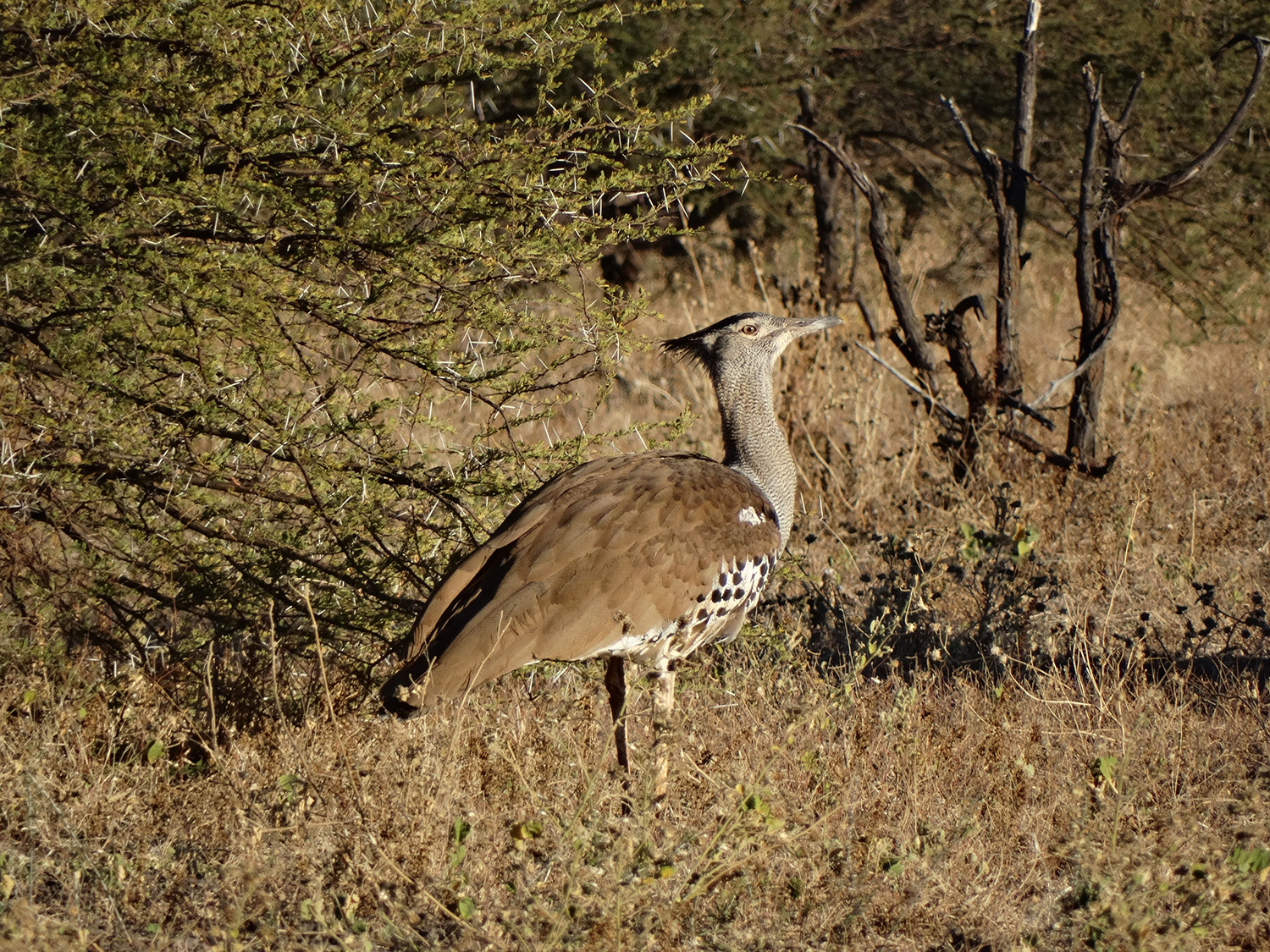
Day 1: Evening flight from Heathrow
Day 2: Arrive Cape Town. Transfer to Hermanus
Our flight to Cape Town should arrive in the morning and after meeting up with our local guide, we will make the relatively short transfer to Hermanus. Although it is less than a two hour drive, we plan to make a series of strategic stops on the way and will concentrate on looking for some of the specialities of the region, in particular African Penguin and Cape Rockjumper.
We are also likely to see our first mammals of the tour including Chacma Baboons.
Day 3: Morning Hermanus. Afternoon transfer to De Hoop birding on route
Our plan for the morning is to concentrate on looking for Southern Right Whales and Hermanus is regarded as one of the best places in the world to see this otherwise tricky cetacean. Named the ‘right whale’ by the whalers, as this species was the right one to hunt (as they were relatively slow moving and floated after being killed), the numbers of these 20+ metre long marine mammals were massively reduced in the southern hemisphere with some populations almost entirely eliminated.
Although hunting officially stopped many decades ago, Southern Right Whale is only slowly recovering but despite this, we stand an excellent chance of finding it as more than one hundred individuals migrate to the coastal waters off Hermanus to calve and mate.
After a morning enjoying the whales, we will leave for De Hoop and, once again, will make strategic stops to look for birds and mammals probably including South Africa’s national bird, Blue Crane, as well as Stanley (Denham’s) Bustard, Bontebok and Yellow Mongoose.
Day 4: De Hoop
We have a full day to explore around De Hoop and hope to find a number of mammals which we are unlikely to see later in our trip. These include Bontebok, Cape Mountain Zebra, Eland, Grey Rhebok and Chacma Baboon and there are also chances for Caracal, Honey Badger and if the water levels in the vlei are good, also Cape Clawless Otter. We will also have further opportunities to look for Southern Right Whales that occur off De Hoop in large numbers and can often be found loafing close to the shore.
There are also a good selection of birds in this region including the only breeding colony of Cape Griffons in the Western Cape. This species of vulture is classified as ‘vulnerable’ by Birdlife International and whilst the numbers in this region have recovered in recent years from a low point of fifty individuals, it remains a somewhat uncommon bird.
Other species we could see in this region include Blue Crane, Denham’s Bustard, Karoo Bustard, Southern Black Korhaan, Black Harrier, Knysna Woodpecker, Grey Tit and the localised Agulhas (Long-billed) Lark. There are also a number of species which are restricted to the Cape Fynbos EBA (endemic bird area) including Cape Spurfowl, Orange-breasted Sunbird, Cape Sugarbird, Cape Bulbul and Cape Siskin.
Day 5: Morning transfer to Cape Town. Afternoon flight to Kimberley and transfer to Marrick
We will leave De Hoop after breakfast, heading for Cape Town where we will take an afternoon flight to Kimberley (c.90 minutes). On arrival, we will transfer to the comfortable Marrick Game Farm which will be our base for three nights.
There are plenty of species to look for over the course of our stay and our days here will combine a mix of day and night drives in our search for the speciality wildlife of the region. Amongst the potential highlights at Marrick are Black-footed Cat, Aardwolf, Aardvark, African Wildcat, Cape Porcupine, Smith’s Red Rock Rabbit and Southern African Hedgehog. We have also seen Zorilla at this location.
There are also some great birds in the area with the possibilities including Northern Black Korhaan, Kori Bustard, Double-banded Courser, Namaqua Sandgrouse, Cape Vulture, Common (Small) Buttonquail and Crimson-breasted Shrike.
Days 6-7: Marrick and Warrenton
We have two full days to explore Marrick and nearby Warrenton (c.70kms away) and our plans will be deliberately kept flexible to maximise on the wildlife opportunities.
There are a great variety of mammals here and possibilities include Karoo Rock Sengi, Cape Hare, Scrub Hare, Spring Hare, Bat-eared Fox, Black-backed Jackal, Small Grey Mongoose, Slender Mongoose, Yellow Mongoose, Meerkat, Small-spotted Genet, Zambezi Greater Kudu, Mountain Reedbuck, Bush Duiker, Gemsbok, Ellipsen Waterbuck, Blue Wildebeest, Steenbok, Four Striped Grass Mouse, Large Eared (Gerbil) Mouse and Bushveld Gerbil.
During our time at Marrick, we will also aim to visit Warrenton as this can be an excellent place to look for Otters – in 2018 we saw three Cape Clawless Otters, those on our 2019 tour saw this species plus two Spotted-necked Otters and despite much lower water levels, we found one Spotted-necked Otter in 2022.
There should also be plenty of birds at both Marrick and Warrenton and previous visits have seen Spotted Thick-knee, Spotted Eagle-Owl, Red-faced Mousebird, Pied Kingfisher, Malachite Kingfisher, South African Shelduck, Red-billed Teal, African Black Duck, Swallow-tailed Bee-eater, Short-toed Rock Thrush, Violet-eared Waxbill, Quailfinch, Black-throated Canary, Lark-like Bunting and Golden-breasted Bunting.
Day 8: Flight to Johannesburg and transfer to Heidelberg. Late afternoon Suikerbosrand
Depending on the time of our flight to Johannesburg, we may have time for some final exploring at Marrick before we return to the airport for the short flight back to South Africa’s largest city. On arrival at Johannesburg, we will transfer to Heidelberg (which should take us about an hour) and, assuming we have time, are likely to visit the Suikerbosrand Reserve in the late afternoon.
Possibilities in this area include Black-backed Jackal, Chacma Baboon, Eland, Blesbok, Red Hartebeest, Plains Zebra and Black Wildebeest with birds seen here previously including Marsh Owl, Red-throated Wryneck, Mocking Cliff Chat, Cape Robin-Chat, Black-collared Barbet, Yellow Bishop and Cape Bunting.
We may also explore the grounds of our lodge as Slender and Yellow Mongooses and Rock Hyrax can be seen there.
Days 9-10: Suikerbosrand and/or Marievale
We have two options for our days at Heidelberg, the reserves at Suikerbosrand and Marievale, and depending on the weather and what we have already seen will largely determine which we concentrate on.
Both reserves have an excellent range of species and on previous visits to Suikerbosrand, we have found Yellow Mongoose, Meerkat, South African Springbok, Blesbok, Zambezi (Greater) Kudu and Red Hartebeest. On our 2018 tour, we were even fortunate enough to find a Caracal sitting by the side of the road.
As with all the places we visit, there will also be plenty of birds and new species at Suikerbosrand could include Grey-winged Francolin, Cape Rock Thrush, Mountain Wheatear, Neddicky, Crested Barbet and Cape Bunting.
At Marievale, we have a further chance of finding otters, with Marsh, Yellow and Slender Mongooses amongst the other possibilities. This area is also very rich in birds and possibilities include African Marsh Harrier, Swainson’s Spurfowl, African Spoonbill, Black-headed and Goliath Herons, Southern Pochard, Cape Shoveler, Hottentot and Red-billed Teal, African Rail, African Swamphen, Black Crake, Three-banded, Blacksmith and Crowned Plovers and Lesser Swamp, African Reed and Little Rush Warblers.
Day 11: Transfer to Madikwe
The drive to Madikwe (which is close to the border with Botswana) is likely to take about five hours, although it is well worth the journey, as there are some great mammals and birds to look for once we arrive. We will, however, certainly aim to stop for anything interesting we see on the way there.
We plan to stay at the Madikwe River Lodge and will have three full days to explore the rich habitats around this delightful lodge where we will have a mix of morning and afternoon excursions, some of which will return to the lodge after dark so we can look for nocturnal wildlife. We may also offer a pre-dawn trip, although like all the other excursions this is, of course, entirely optional and you are welcome to spend time relaxing at the lodge.
Our main target here is the African Hunting (Wild) Dog which we saw on our 2018, 2019 and 2022 tours. We will also target Brown Hyena (seen at a den in 2022). Madikwe also offers opportunities to see a great range of other predators with the possibilities including Lion, Cheetah, African Wild Cat, Spotted Hyena, Black-backed Jackal, Small-spotted Genet, Large-spotted Genet, Slender, Banded and Dwarf Mongoose with chances also for Leopard and Caracal.
Days 12-14: Madikwe
With plenty of options at Madikwe, we can expect to find many species over the three days we have planned here and our days will generally comprise some pre-breakfast exploring, followed by morning and afternoon/evening excursions. When not out looking for mammals from our vehicle, there are opportunities to either rest up at the lodge or explore the grounds for birds and other wildlife.
As well as the carnivores listed above, there are plenty of other interesting mammals for us to look for at Madikwe and those seen on our previous trips include Southern Lesser Galago, African Savanna Hare, South African Ground Squirrel, Tree Squirrel, Spring Hare, African Savannah Elephant, Plains Zebra, White Rhinoceros, Black Rhinoceros, Common Warthog, Short-snouted Sengi, South African Giraffe, African (Savanna) Buffalo, Zambezi (Greater) Kudu, Cape Bushbuck, Gemsbok, Ellipsen Waterbuck, Transvaal Klipspringer, Steenbok and Common Duiker.
Whilst mammals will be our main priority, there is a fantastic range of birds that can be found here too, many of which we may not have encountered previously on the trip and the possibilities include Common Ostrich, Natal Spurfowl, Harlequin Quail, Red-crested Korhaan, Emerald-spotted Wood Dove, Grey Go-away-bird, Pearl-spotted Owlet, Spotted Eagle-Owl, Rufous-cheeked Nightjar, Malachite Kingfisher, Brown-hooded Kingfisher, Swallow-tailed Bee-eater, Southern Yellow-billed Hornbill, Southern Red-billed Hornbill, Bearded Woodpecker, Black-headed Oriole, Sentinel Rock Thrush, White-browed Scrub Robin, White-throated Robin-Chat, Rattling Cisticola, Chinspot Batis, Southern White-crowned Shrike, Red-billed Oxpecker, Red-billed Buffalo Weaver, Blue Waxbill and Red-billed Firefinch.
Day 15: Early morning Madikwe, transfer to Johannesburg for flight home
We will have a final early morning to explore around Madikwe before we will reluctantly pack our bags for the drive back to Johannesburg and our overnight flight back to the UK.
Day 16: Arrive Heathrow
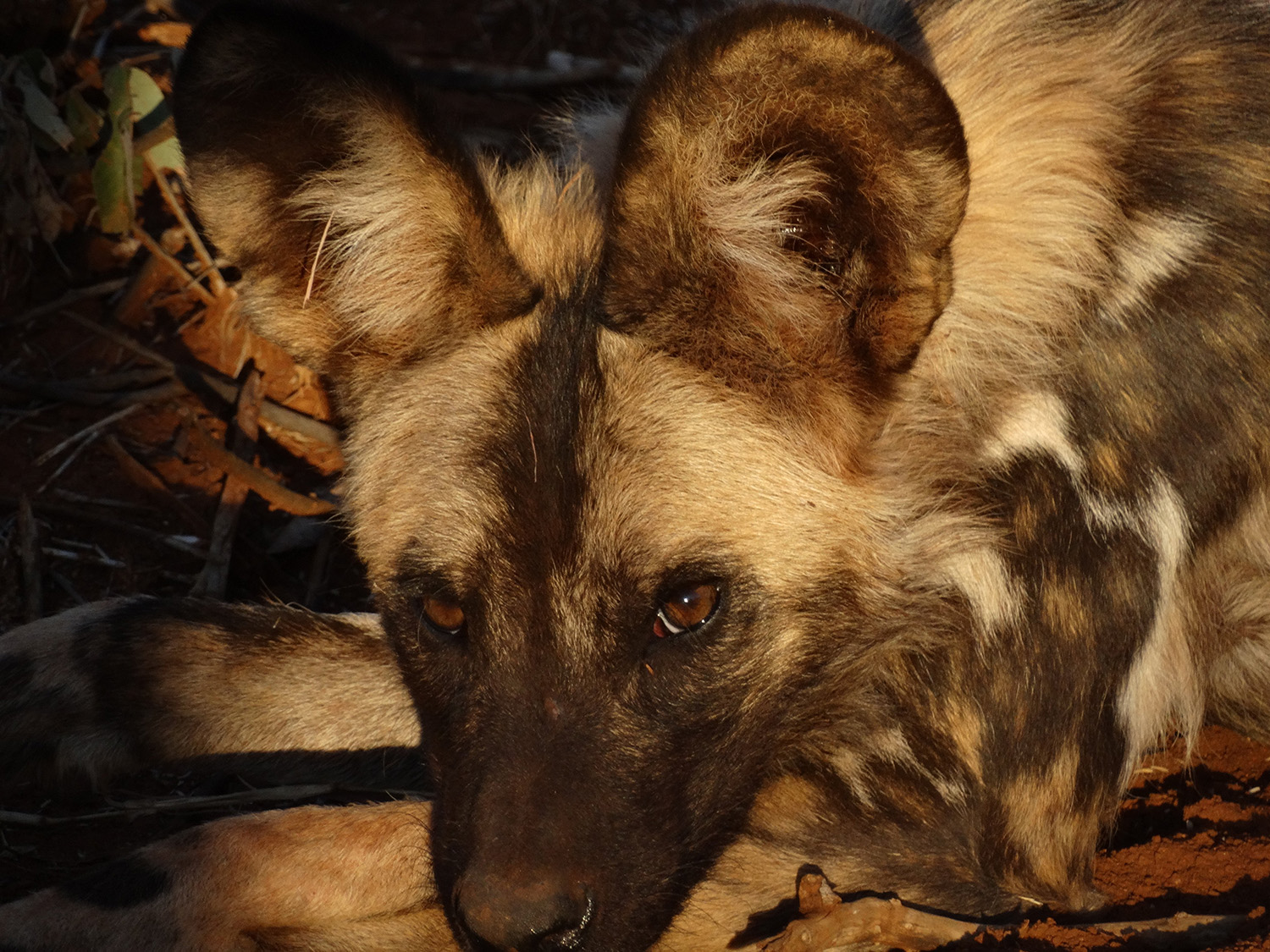
WHAT TO EXPECT
A 16-day mammal-focussed wildlife tour to South Africa where we will visit three main areas over the course of the holiday. We start off by travelling east from Cape Town exploring Hermanus and De Hoop where our goal will be to see Southern Right Whales plus a number of species which only occur relatively close to the coast. We will then head to Marrick for a three night stay before moving on to Heidelburg where again there will be plenty of different species to look for. Our tour will then conclude with four nights at Madikwe Game Lodge which is close to the border with Botswana where we stand a chance of seeing all of Africa’s “Big 5” plus African Wild Dog (seen on our 2108, 2019 and 2022 tours) and a host of other species.
Whilst mammals will be the main focus of the trip, we will also look for some of the speciality birds of South Africa and during our time near Cape Town, for example, will endeavour to see African Penguin and Cape Rockjumper (seen in 2022), however, it is important to appreciate that this is not a birding tour.
Whilst many of our excursions will (by necessity) be by vehicle, there will be some exploring on foot at some locations, however, we will not be undertaking long/extended walks.
On some evenings, we will offer trips after dark to look for wildlife but like most of the excursions, these are entirely optional.
VISAS
Visas are currently not required for South Africa for British citizens but your passport must be valid for at least 6 months after this tour, with two blank pages
CURRENCY
The rand (ZAR) is the currency of South Africa. In December 2022, a Pound was worth approximately 20 Rand. There are exchange facilities and cash machines in the airport. You should only require a small amount of local currency, probably no more than £100 for drinks, laundry, gifts, tips etc.
Local guide and driver tips are included in the cost of the tour but you may want to leave tips for waitresses etc at the lodges. There are tip boxes at each of the lodges. The cost of soft drinks and beers with meals are included in the cost of the tour but you will need to pay for wine and other alcoholic drinks.
If are taking cards with you, please inform your issuer/s, so they do not block transactions for ‘security reasons’.
LANGUAGE
English is widely spoken although we may also encounter Afrikaans in some areas.
ELECTRICITY
- Electricity in South Africa is 230 Volts.
- Several types of plugs/sockets are in use but the most common has three round pins, so a travel adaptor is essential if you plan to charge batteries etc. Several types of plug are in use. See the following website for further details. http://www.worldstandards.eu/electricity/plug-voltage-by-country/
TRANSPORT
When not on foot, our ground transport will be in a combination of minibuses and 4×4 vehicles. At most localities we should be in one vehicle but if the numbers in the group do require us to use two vehicles the vehicles will have radios to stay in contact.
HOTELS AND MEALS
We will be staying in three comfortable lodges/hotels on the tour.
- Kimberley area. Marrick Game Farm www.marricksafari.com
- Johannesburg area. We will be staying in comfortable accommodation in Heidelberg to the south of Johannesburg and will have our evening meals in nearby restaurants.
- Madikwe Game Reserve. Madikwe River Lodge www.madikweriverlodge.com .
On most days we will have breakfast, lunch and dinner at our accommodation although on two or three days we may take picnic lunches with us into the field. If you have any particular dietary restrictions or any particular culinary dislikes please advise us in advance.
At Madikwe, we have late breakfasts after morning spotlighting sessions and may not have breakfast until 11:00 on some mornings so you may want to bring snack bars with you to keep you going on these drives.
Please ensure that you drink only bottled water and/or soft drinks throughout. (NB: Do not drink if water the seal has been broken!).
WEATHER
It is likely to be hot during the day but it could be much cooler when spotlighting at night, and at dawn. The mean temperatures (centigrade) are as follows.
Kimberley 18C
Heidelburg area 15C
Madikwe 28C
INSECTS
Mosquitoes may be a problem at some locations but this varies a lot from year to year and we have not experienced any problems previously, however, please come prepared with repellent and long sleeved clothing.
HEALTH
- It is essential that you check with your doctor regarding vaccination requirements for South Africa, particularly with regards to yellow fever.
- Malaria is low risk throughout and Madikwe Game Reserve and Suikerbosrand are generally considered to be malaria-free but please check with your doctor regarding the latest malaria advice.
- If you have any existing medical conditions please ensure that you bring all personal medication with you as it is unlikely that we will be able to obtain replacement medication in the areas that we are visiting.
- If you do have any pre-existing medical conditions and/or are taking any regular medication would you please provide details when booking or alternatively ensure that Ewan is made aware of this at the start of the tour.
SMOKING
Smoking (including E-cigarettes) is not permitted on minibuses etc used but the leaders will try to ensure that there are adequate stops for those requiring a nicotine fix. We would also ask smokers to respect non-smokers during the tour and refrain from smoking during meals.
CLOTHING AND OTHER EQUIPMENT
- Temperatures can be extremely cold at night and early in the mornings if a cold front passes through, so please bring some warm clothing including a warm fleece and a windproof jacket plus gloves with you. Sunblock is essential.
- We expect to spotlight on at least four nights but this will in part depend on weather conditions. Consequently please bring torches with you.
- Sober coloured clothing, hats and backpacks, greens, browns and dark blue etc is preferable, conspicuous colours such as white, red and yellow should be avoided.
- A folding umbrella and light-weight waterproofs could be useful if we do experience any rain.
- Waterproof boots should not be necessary, but a pair of sturdy waterproof walking shoes is advisable.
- Good binoculars with a specification of at least 8×30 are essential, particularly when spotlighting, and if you have them a telescope and tripod or monopod may well be useful.
- Photographic opportunities should be excellent.
CHECKLIST
We will attempt to do a daily log each evening. Ewan will keep a track of what has been seen at each locality and at some stage; there is always time to catch-up. A bird and mammal checklist will be sent to you before departure and we will provide a trip report after the tour.
INTERNET
Wi-fi access can be erratic at a number of places where we stay so please ensure that anyone likely to be trying to contact you while you are away is aware that you may not have access to email on some days.
EMERGENCIES AT HOME
Mobile phones do work in South Africa but coverage is patchy so people may not be able to contact you. In the event that someone does need to contact you while you are on the tour please ask them to contact the Wildwings’ office on 0117 965 8333 and they will arrange for the message to be forwarded on to the tour.
FLIGHTS
Despite the end of many pandemic restrictions, it is still proving extremely difficult to predict future flight prices and schedules. As a result, we have taken the decision to continue to price our holidays as excluding international flights.
To keep the process as simple as possible, we are working very closely with a dedicated agent at Travel Counsellors, Sacha Barbato, who is essentially now our “in house” flight consultant.
Sacha will be able to advise you which flights we are recommending for each holiday, and he will be able to book these for you.
Tour Gallery
View a gallery of images for this tour below, click on an image to view as full size with caption
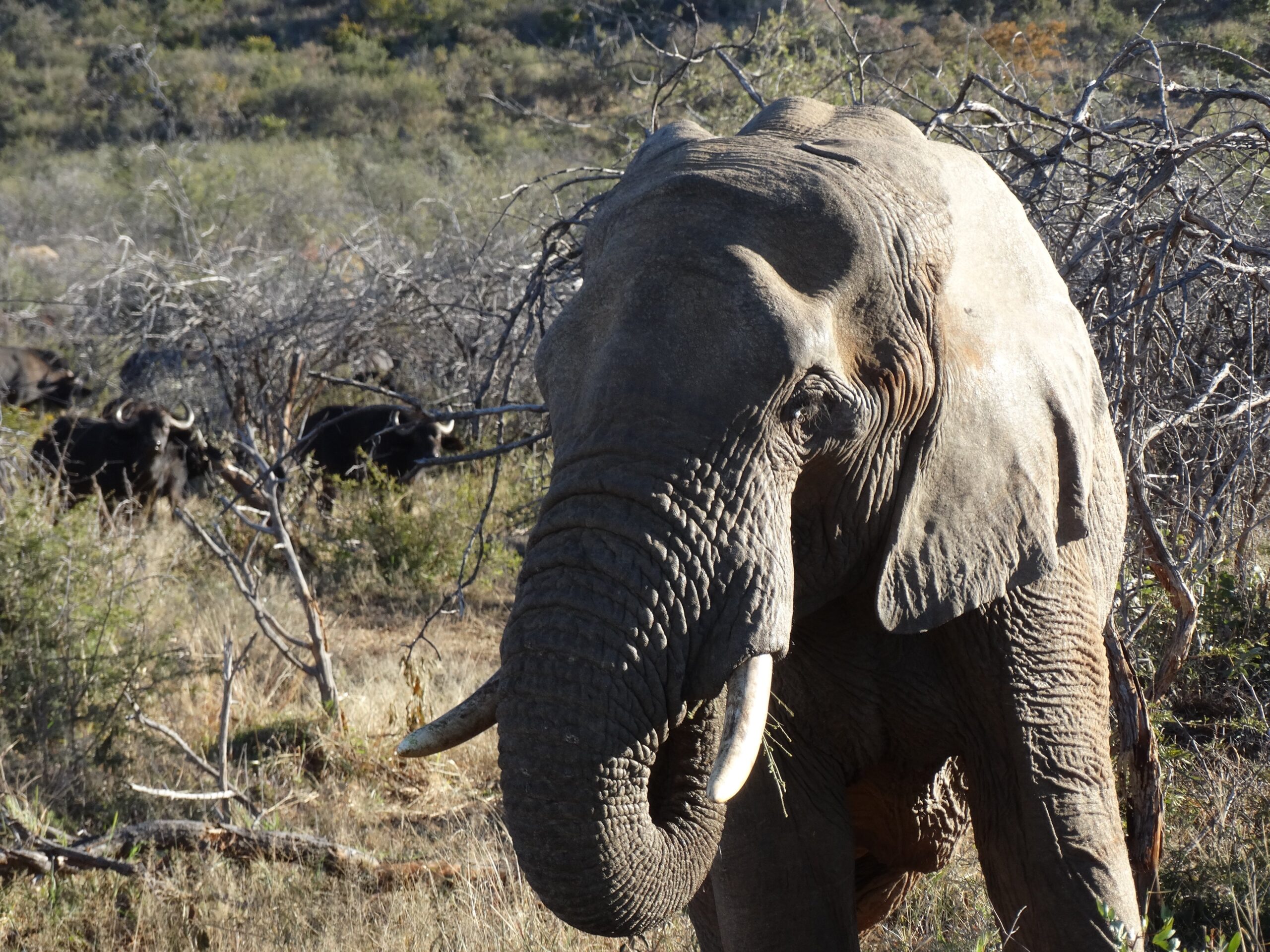

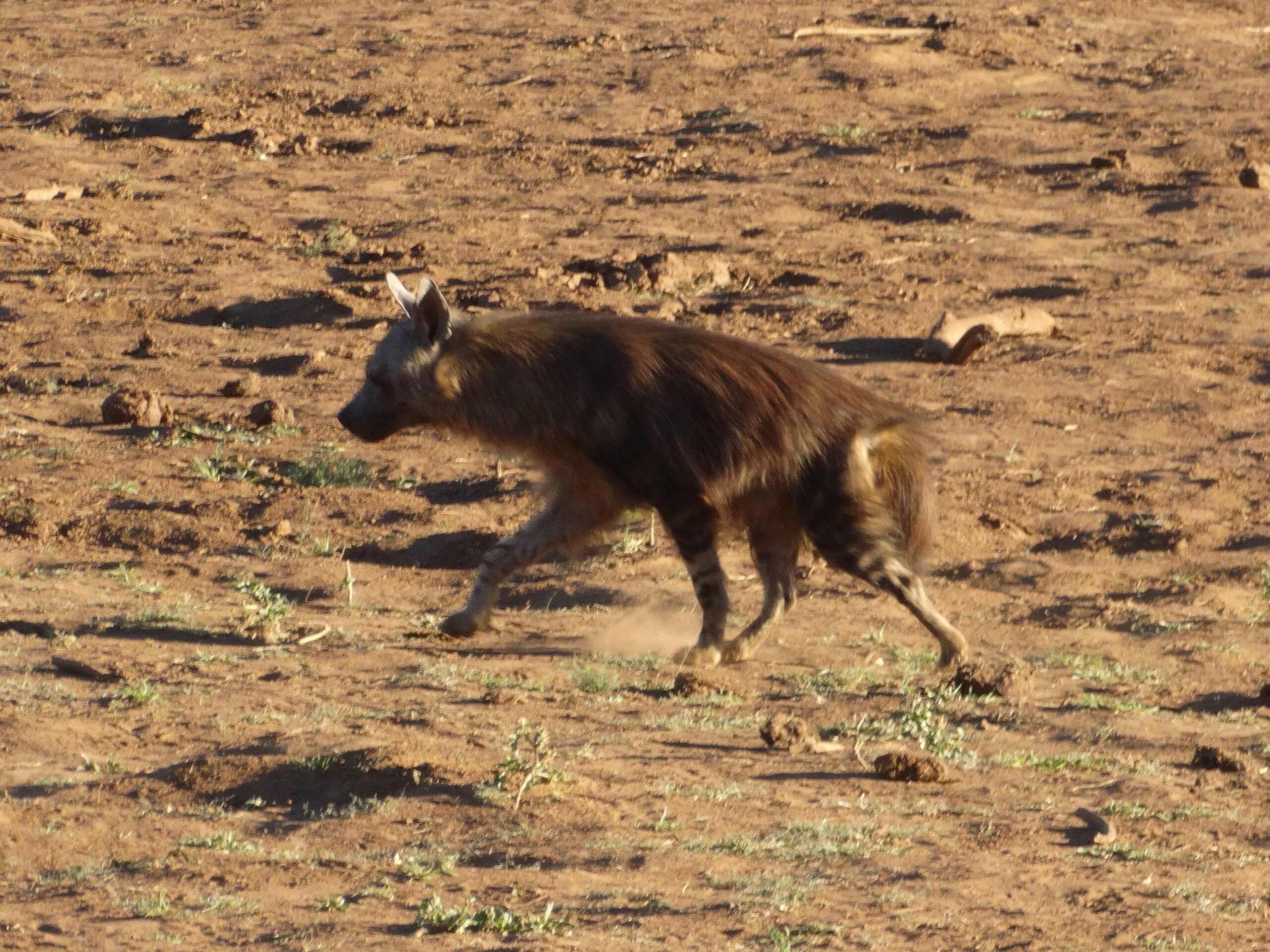
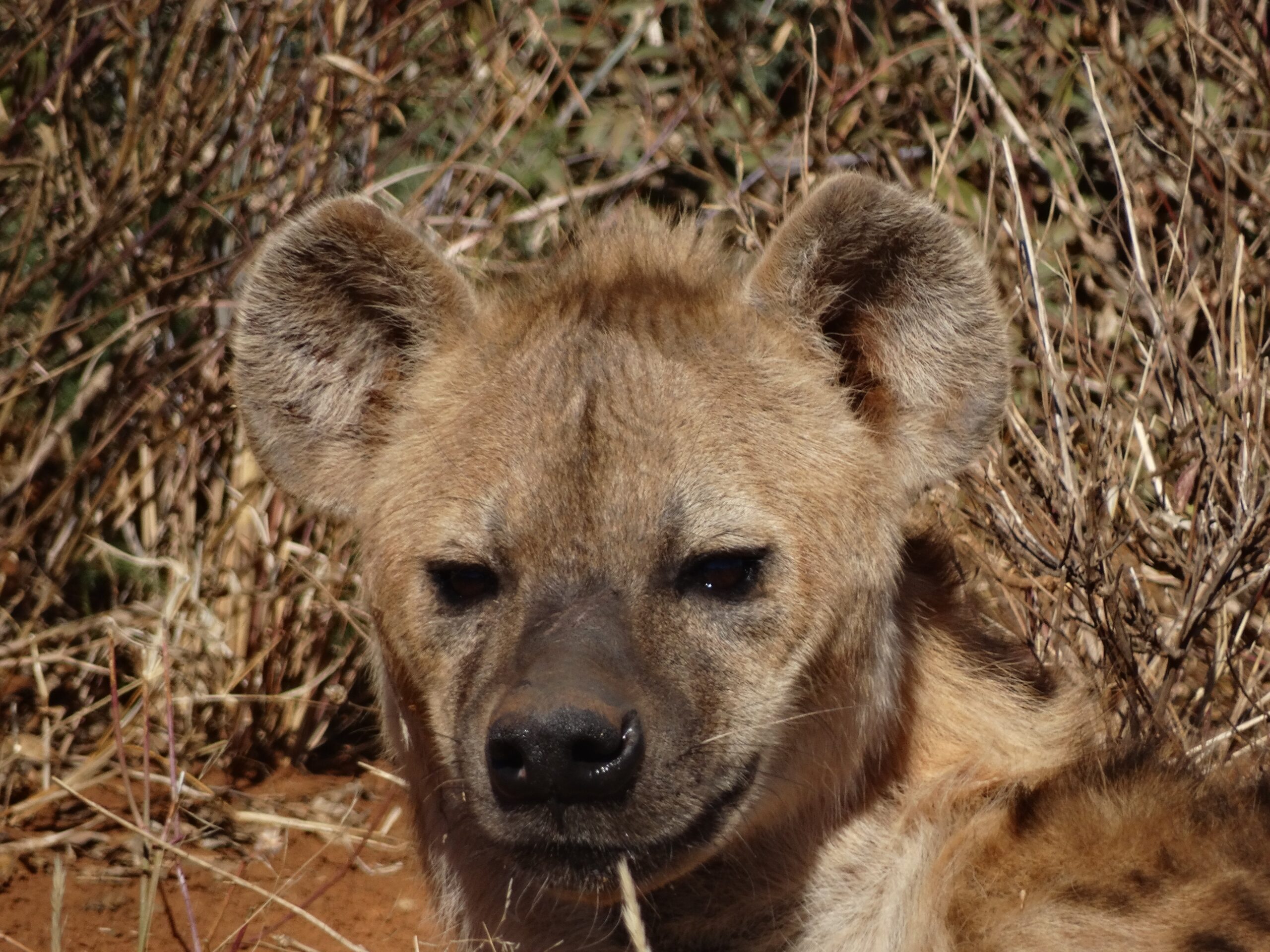
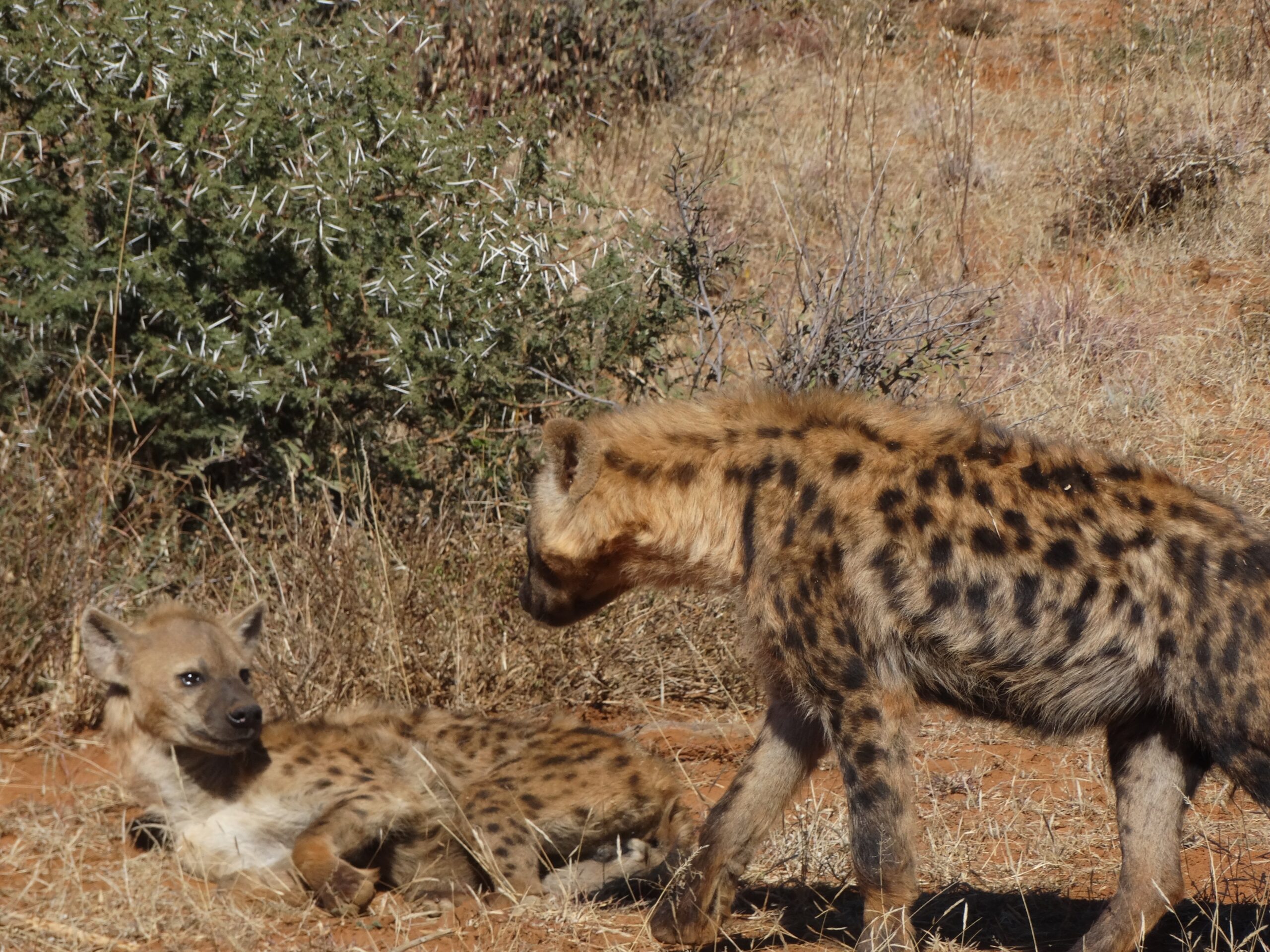
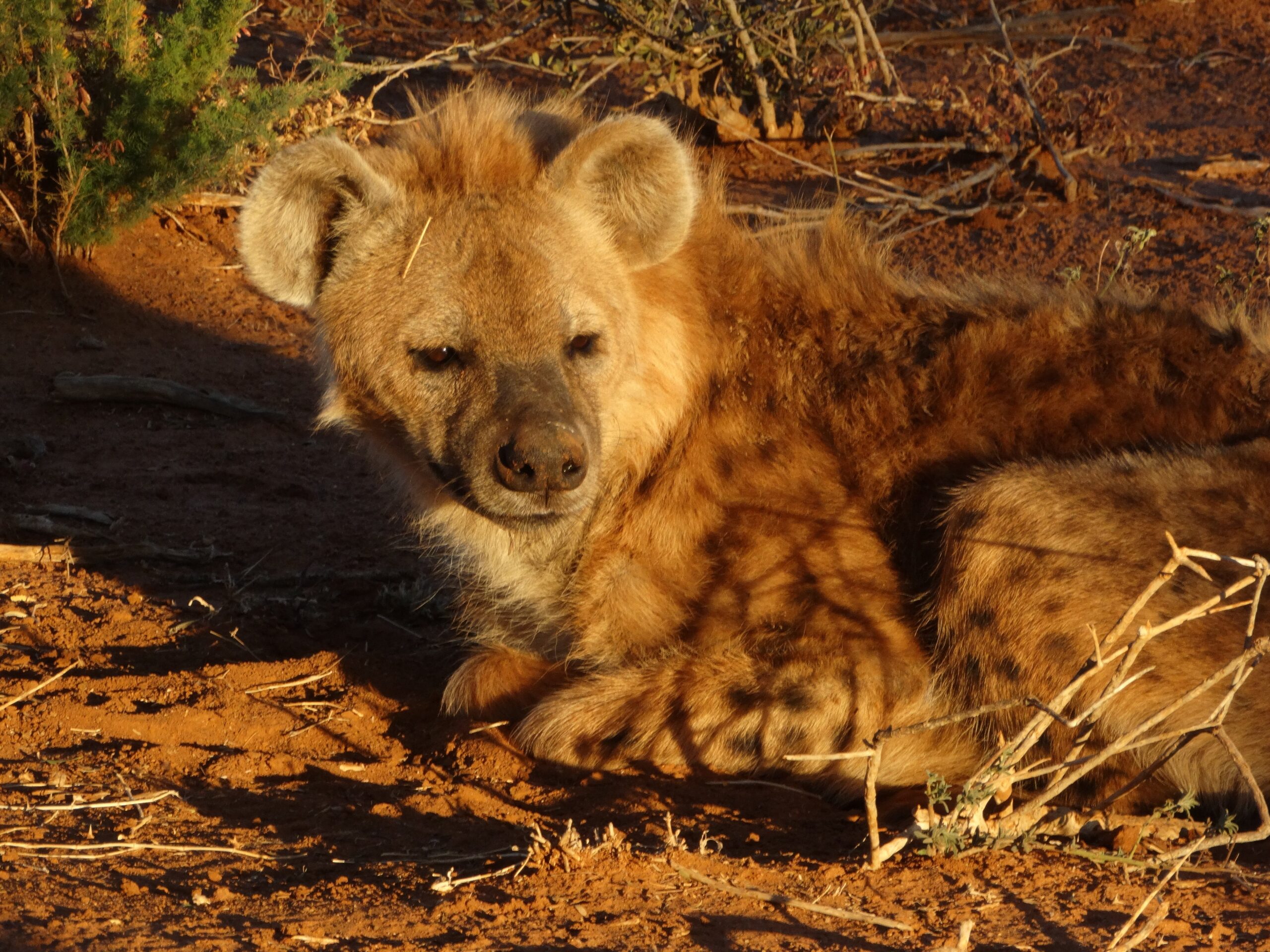
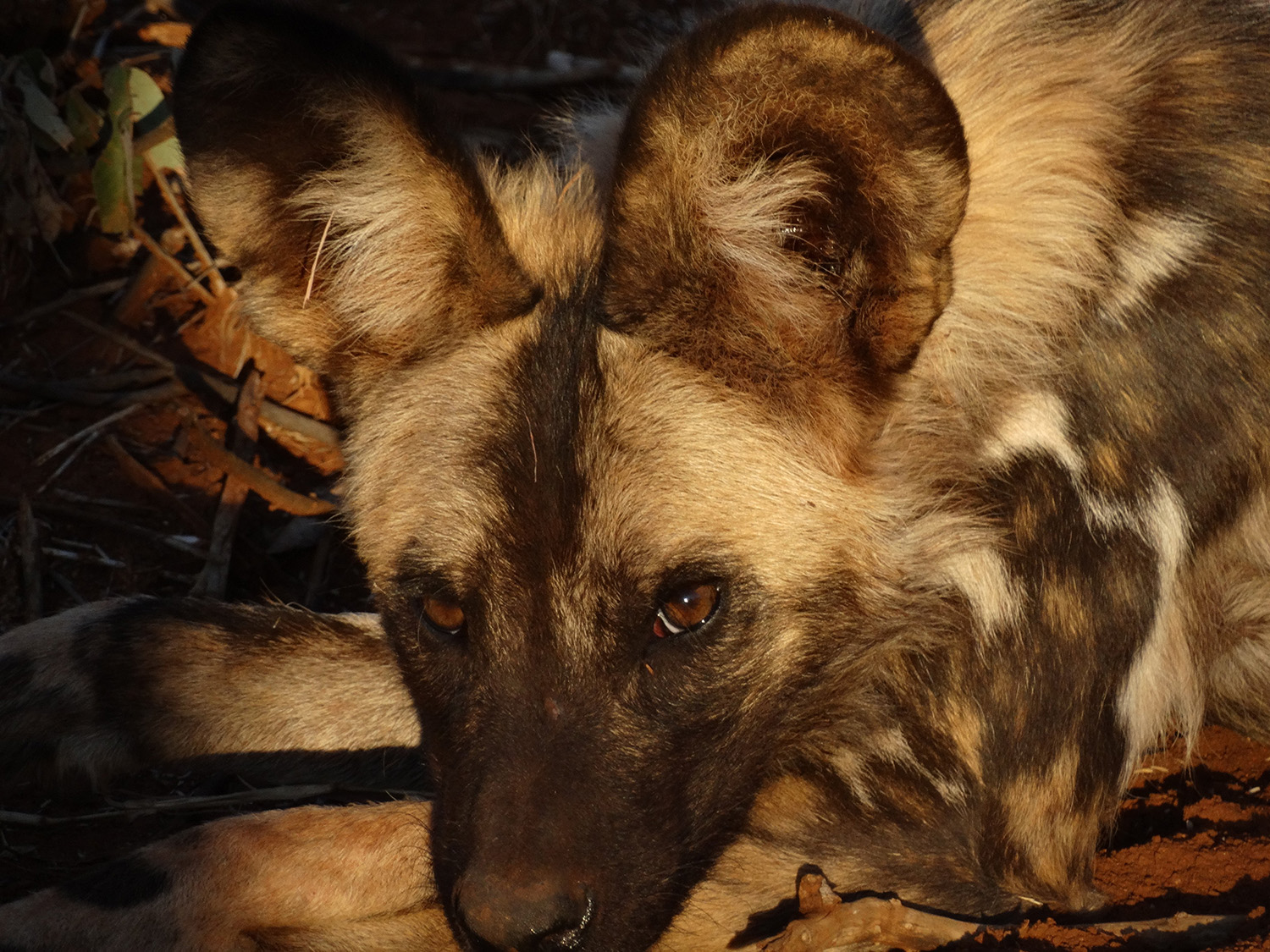
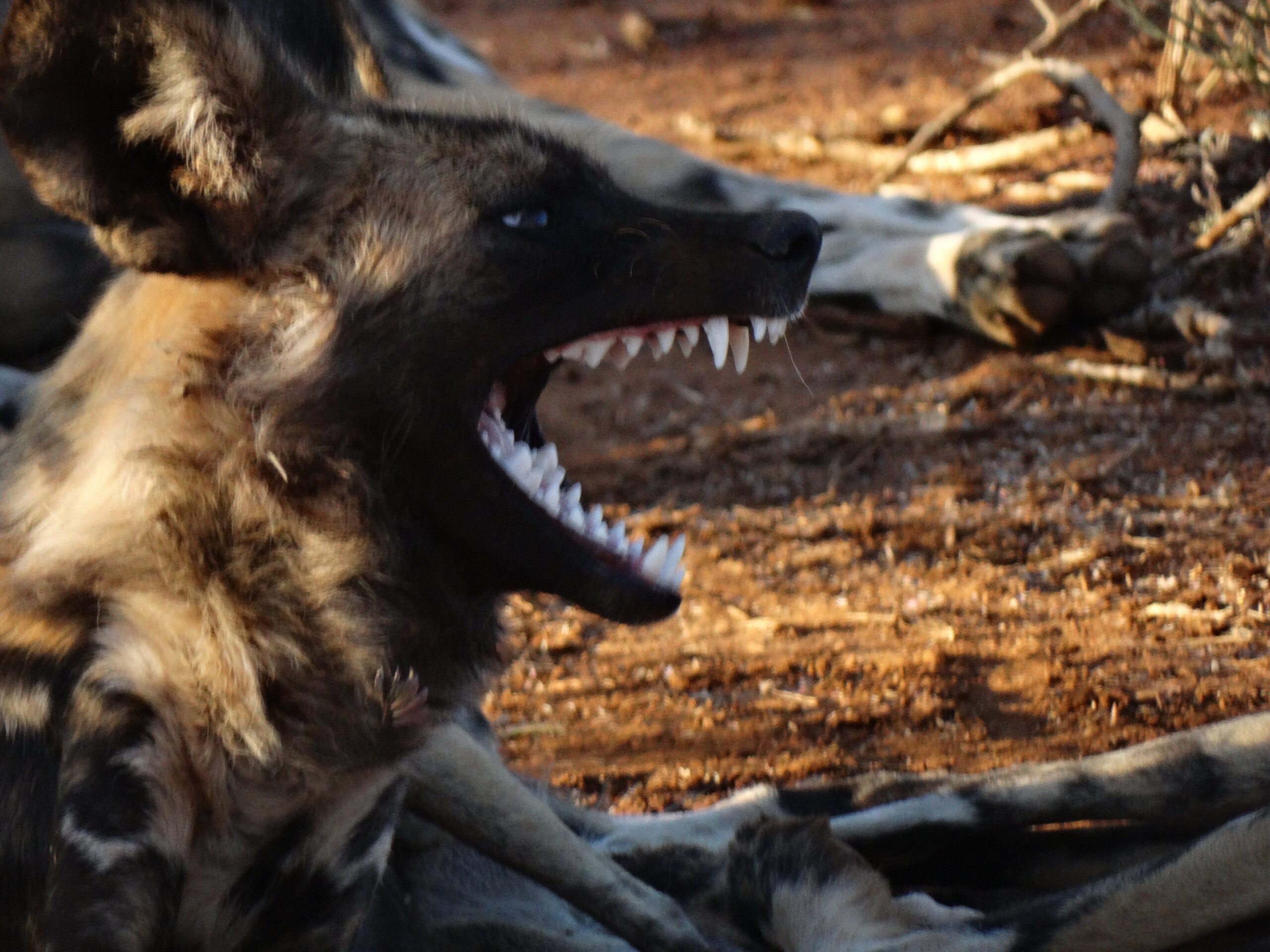
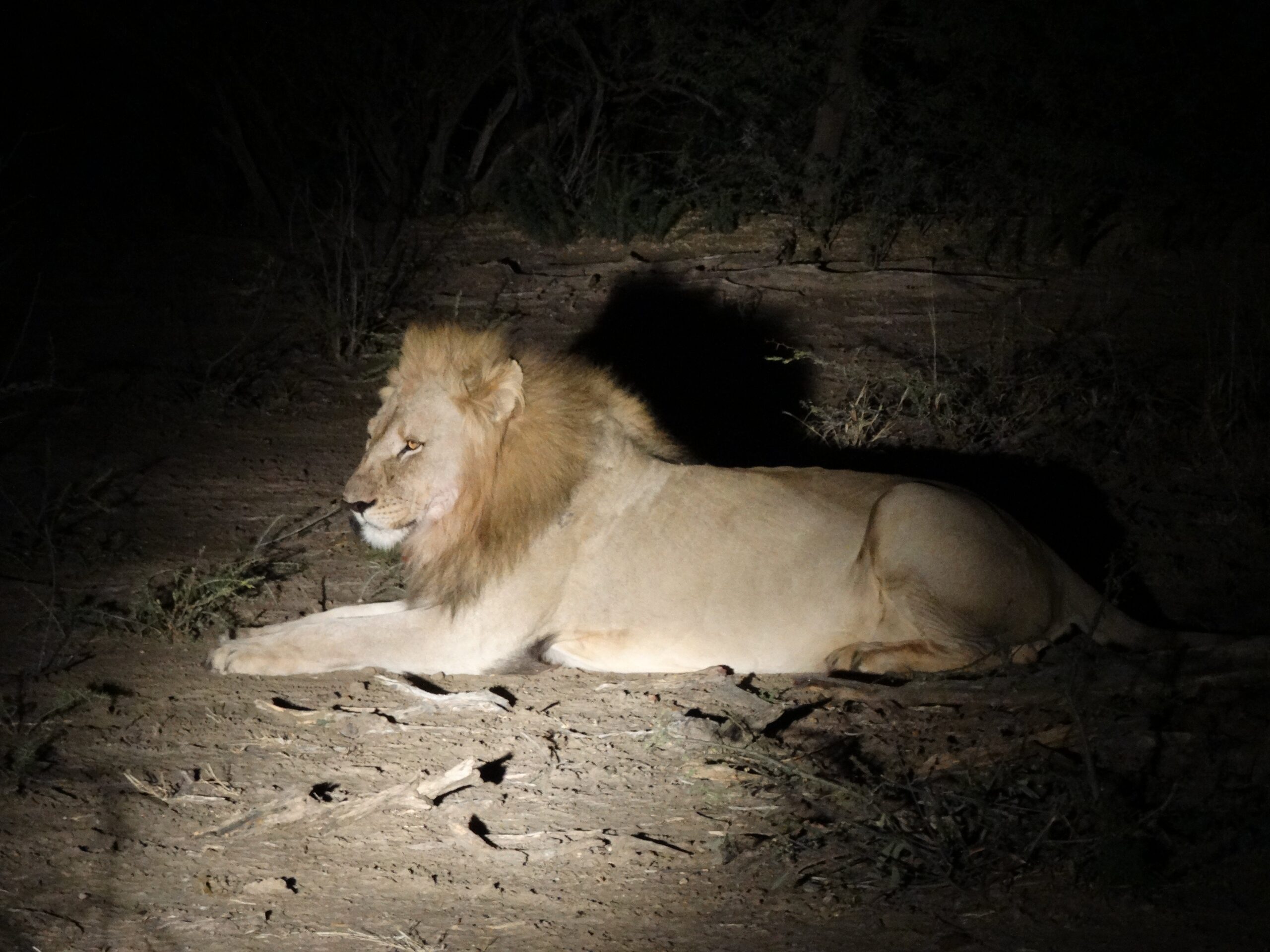
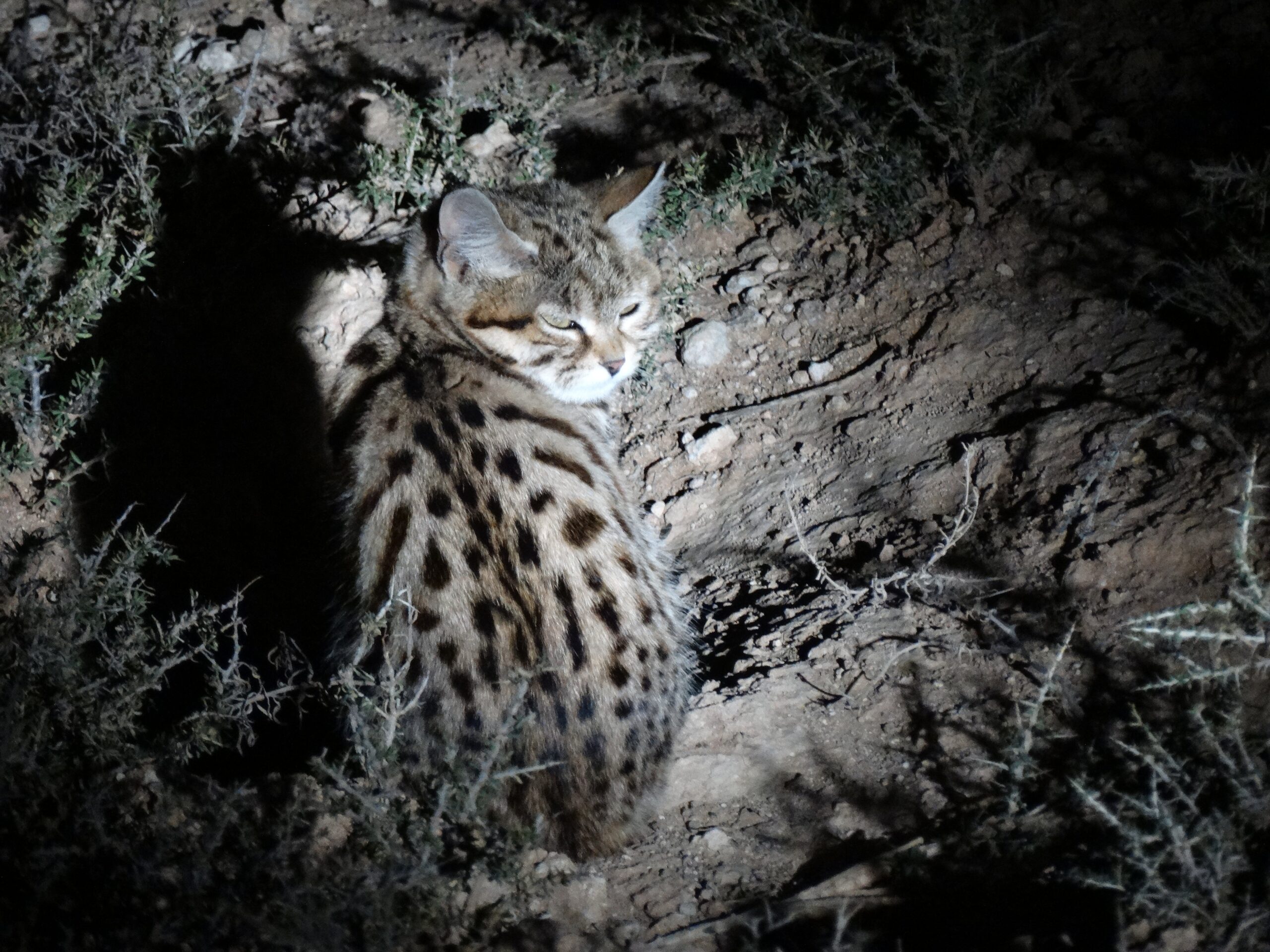
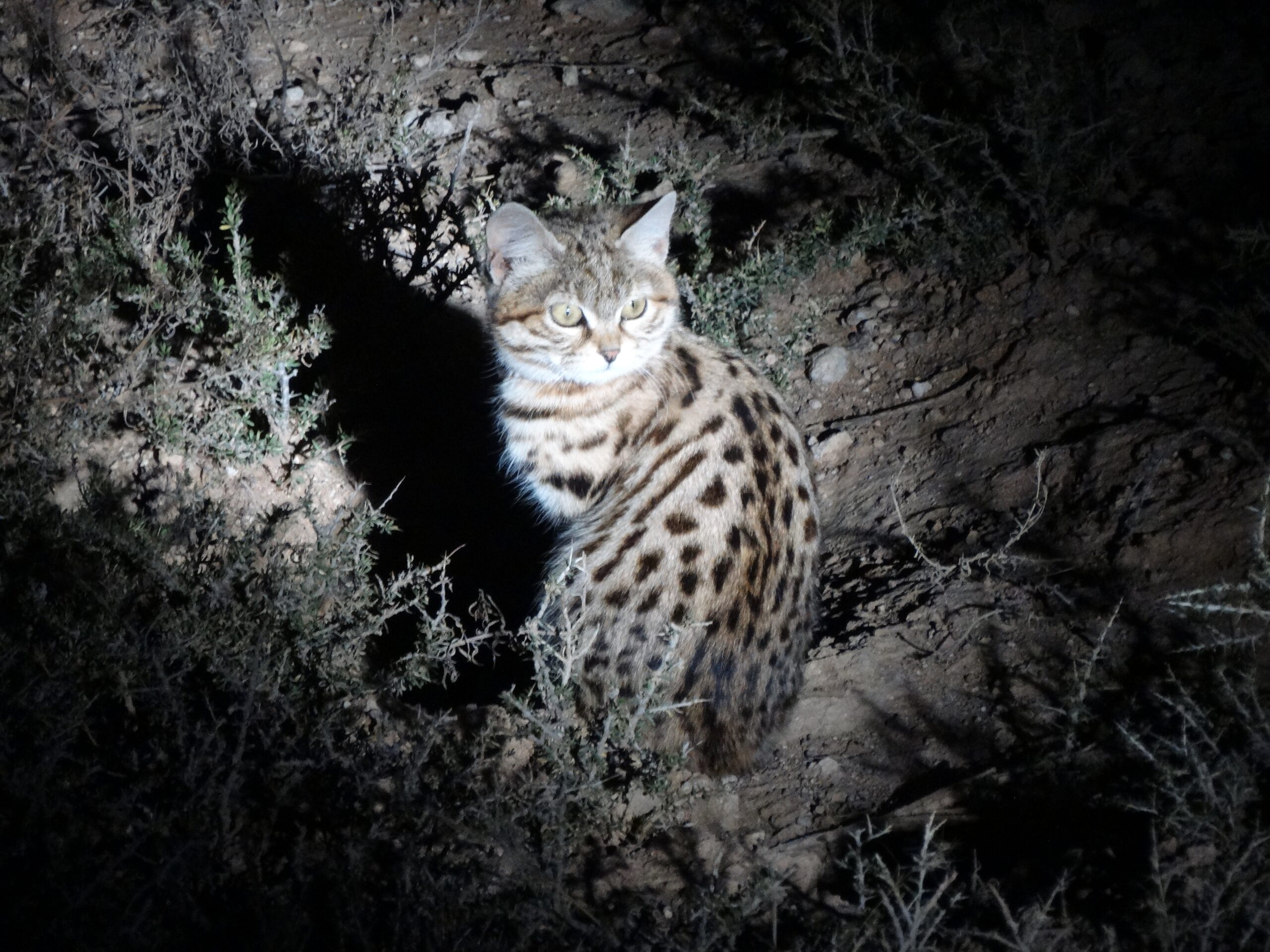
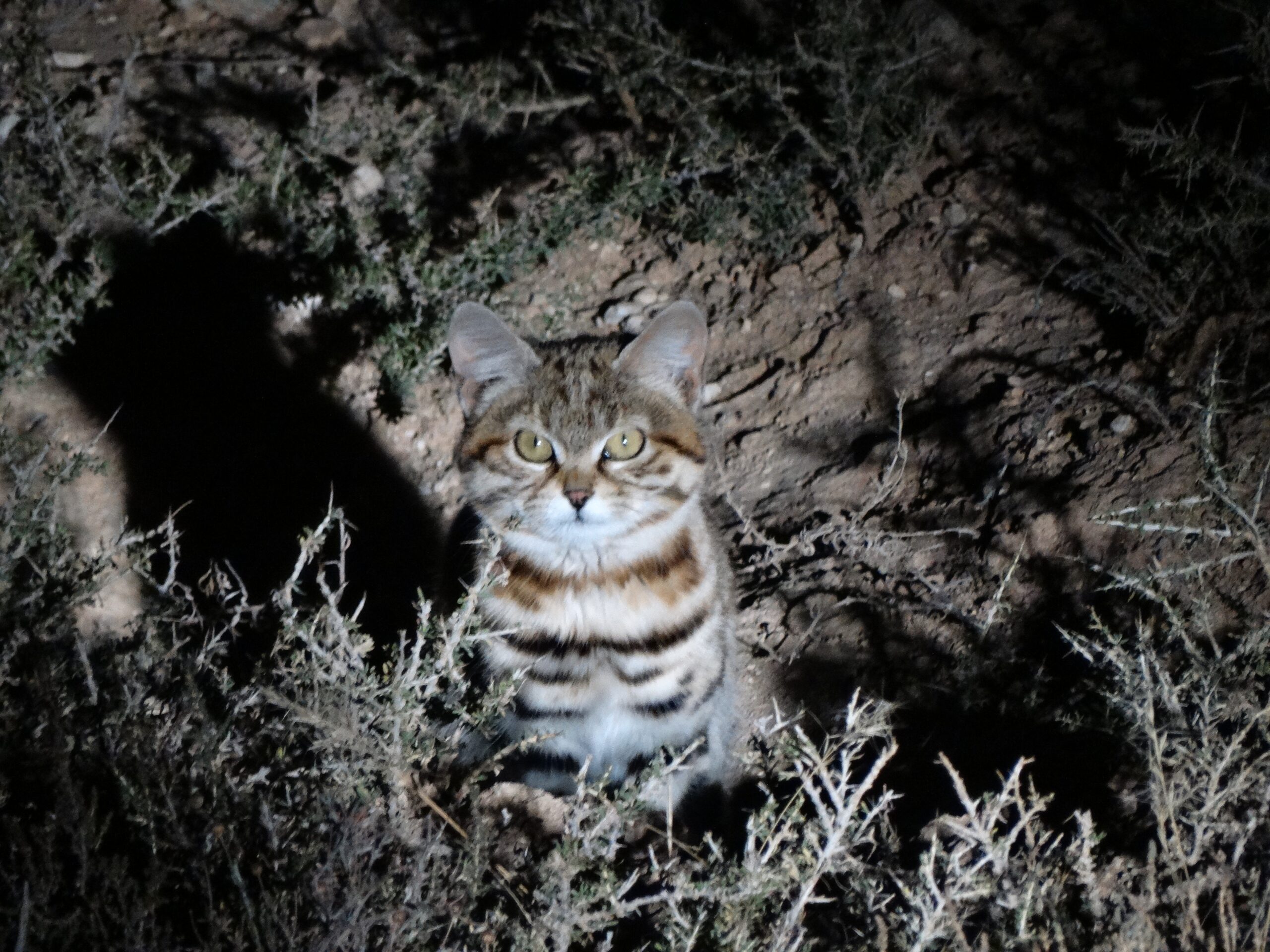
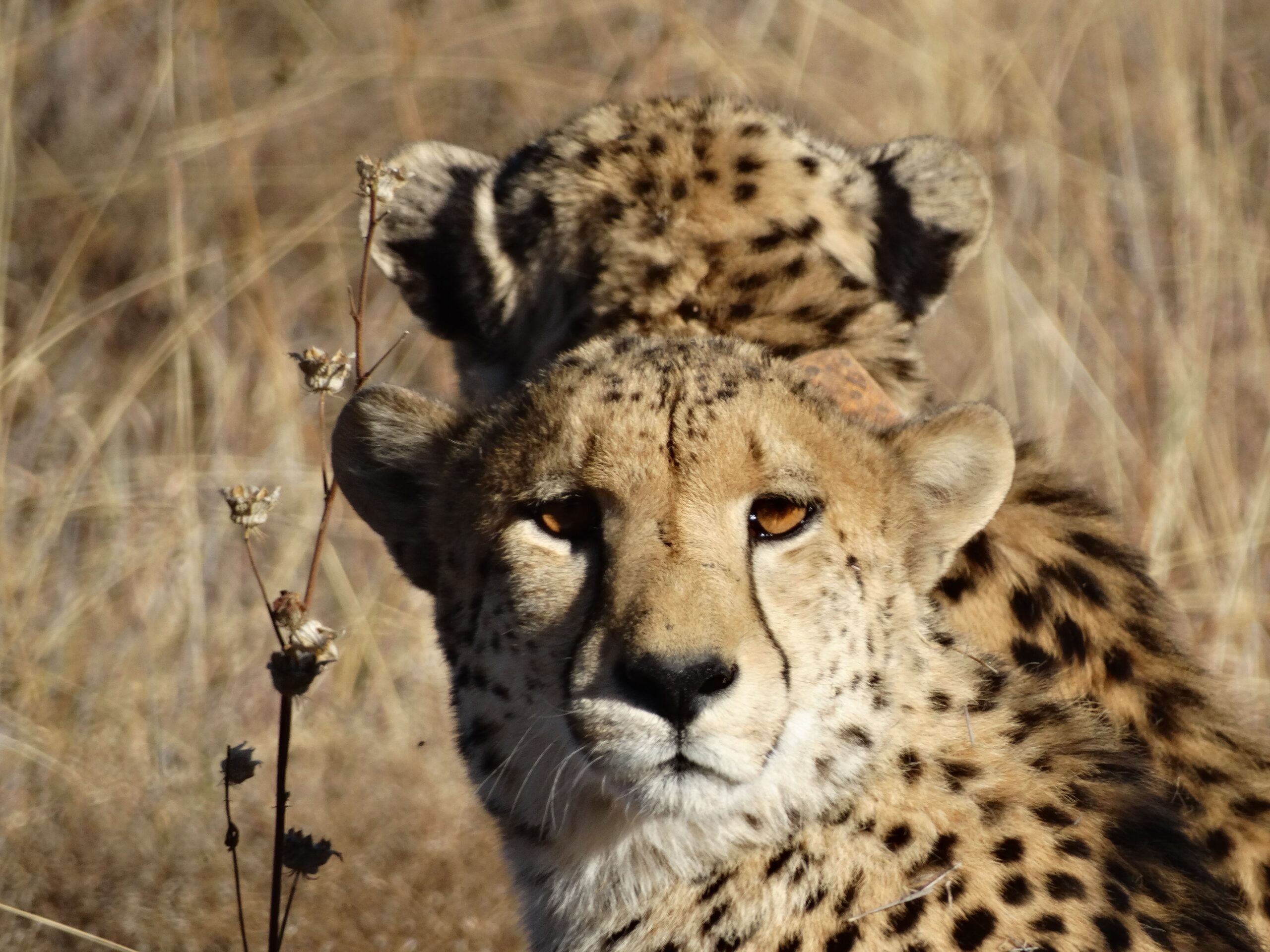
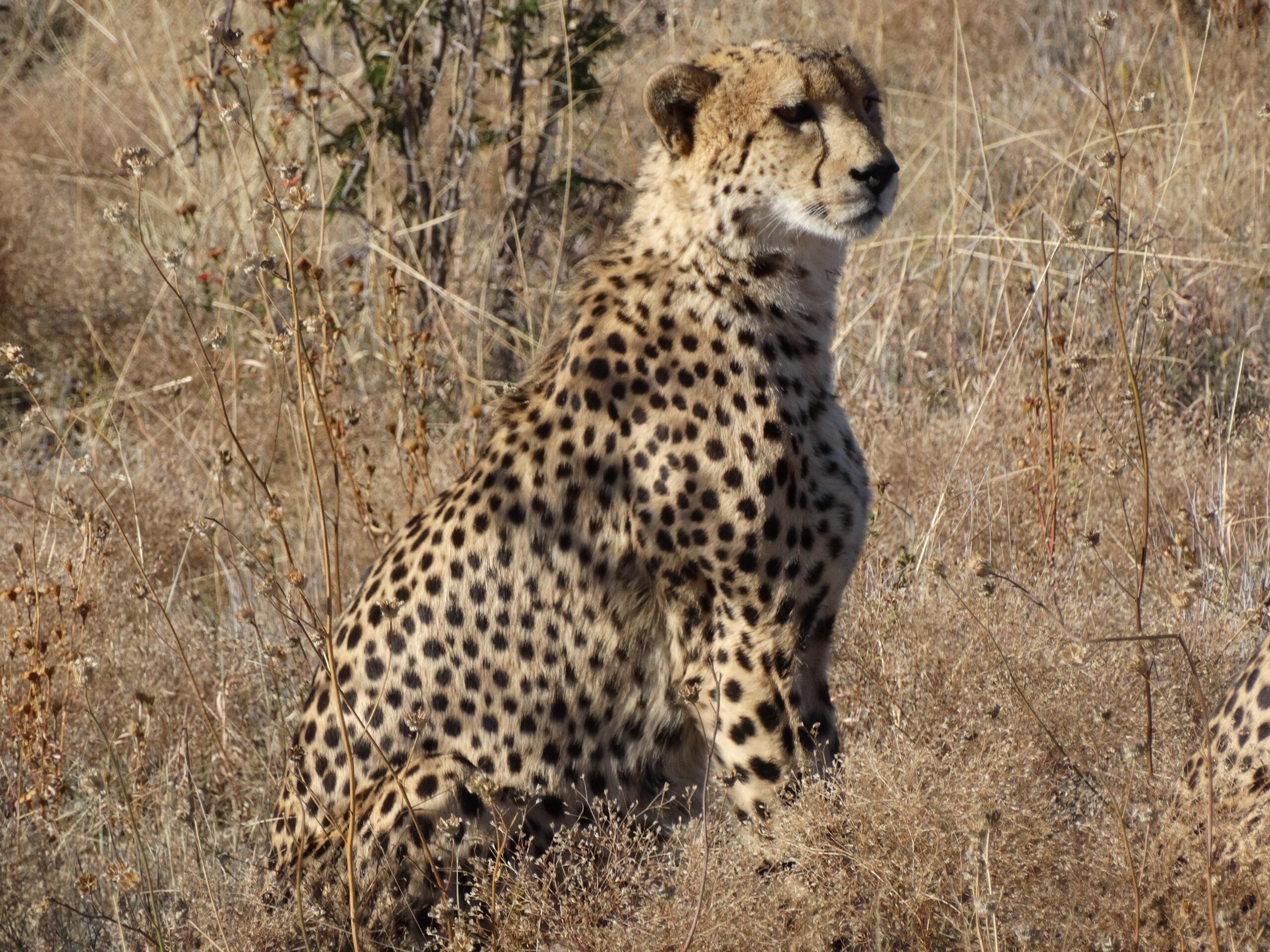
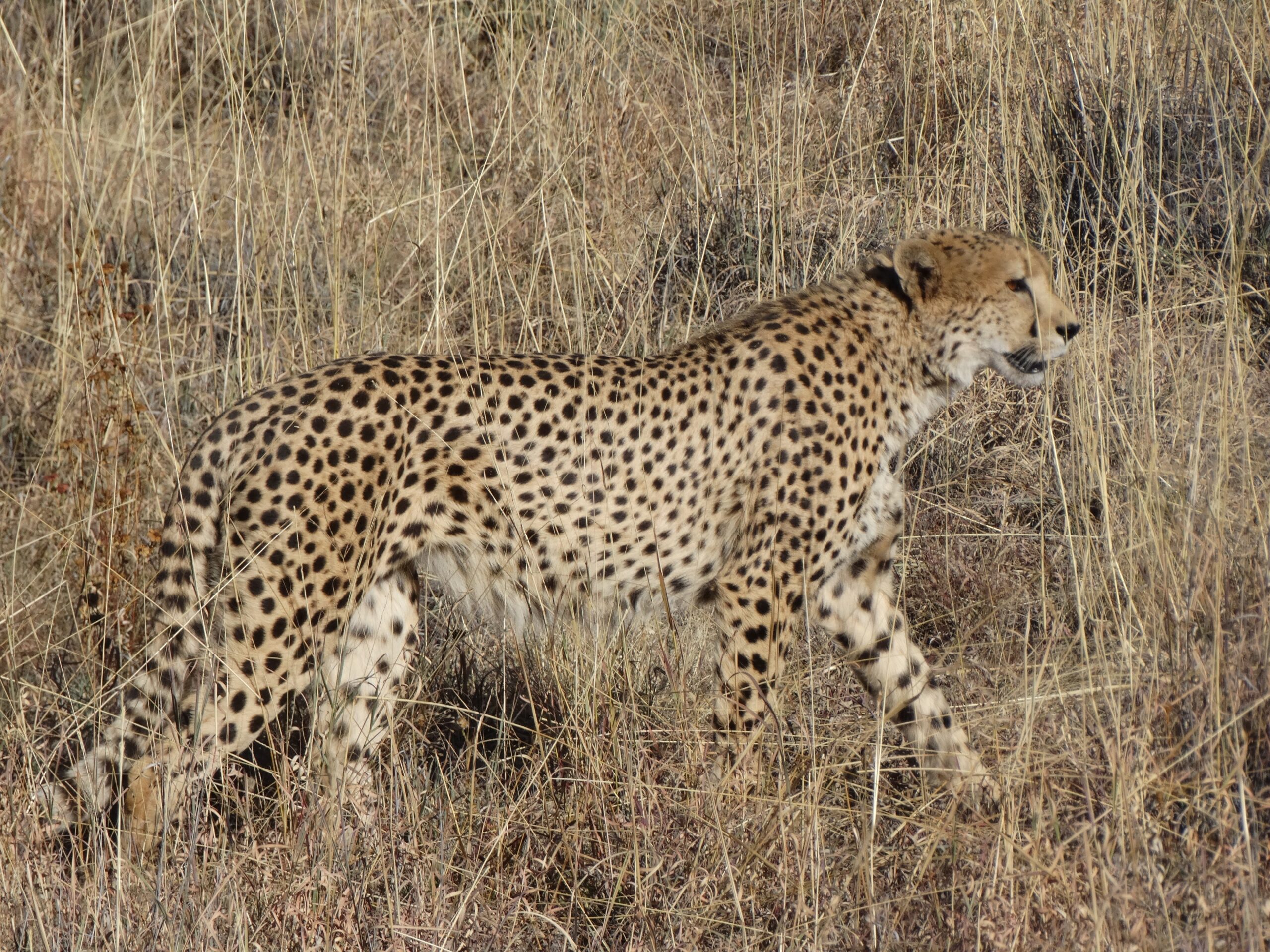
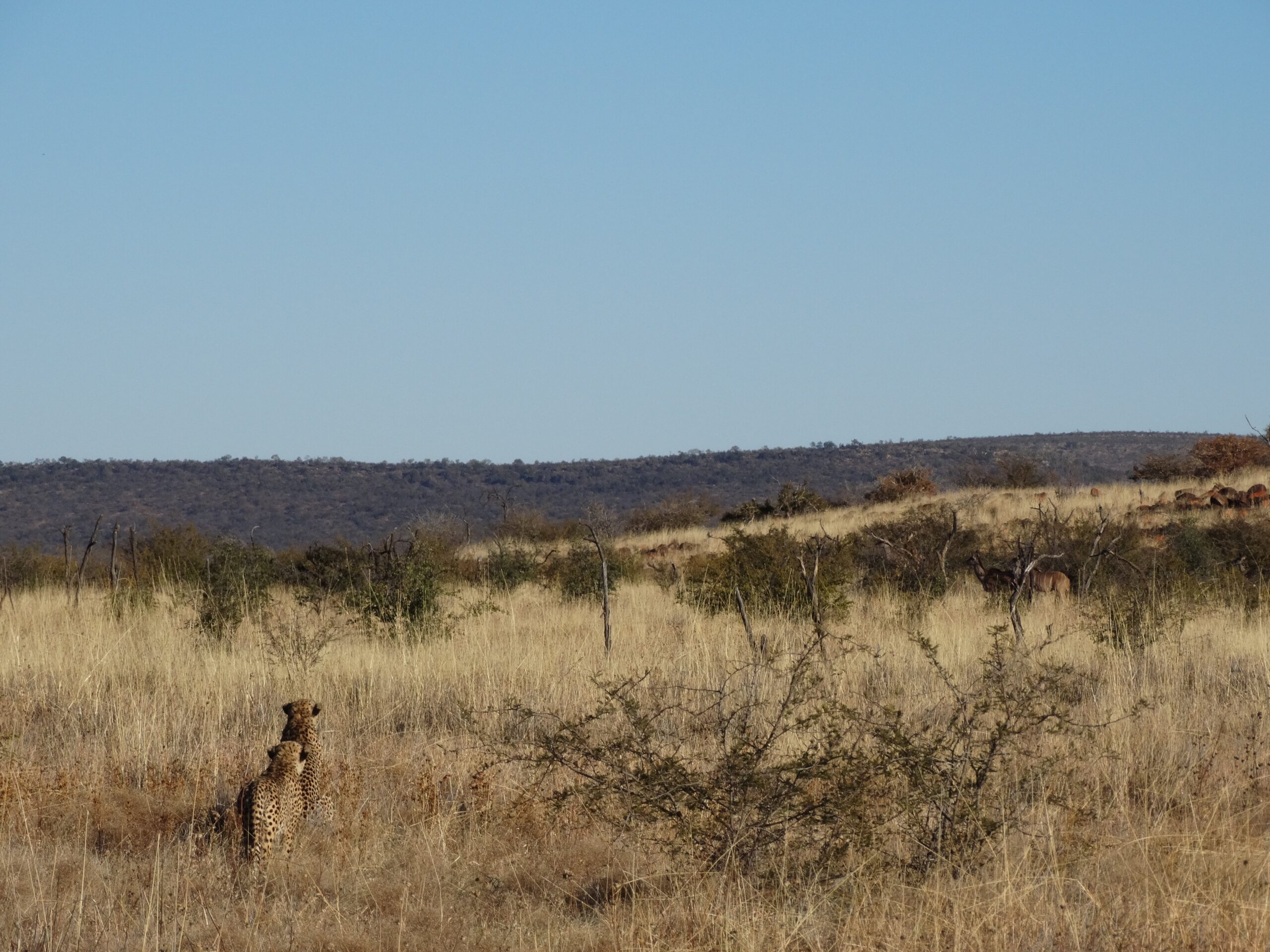

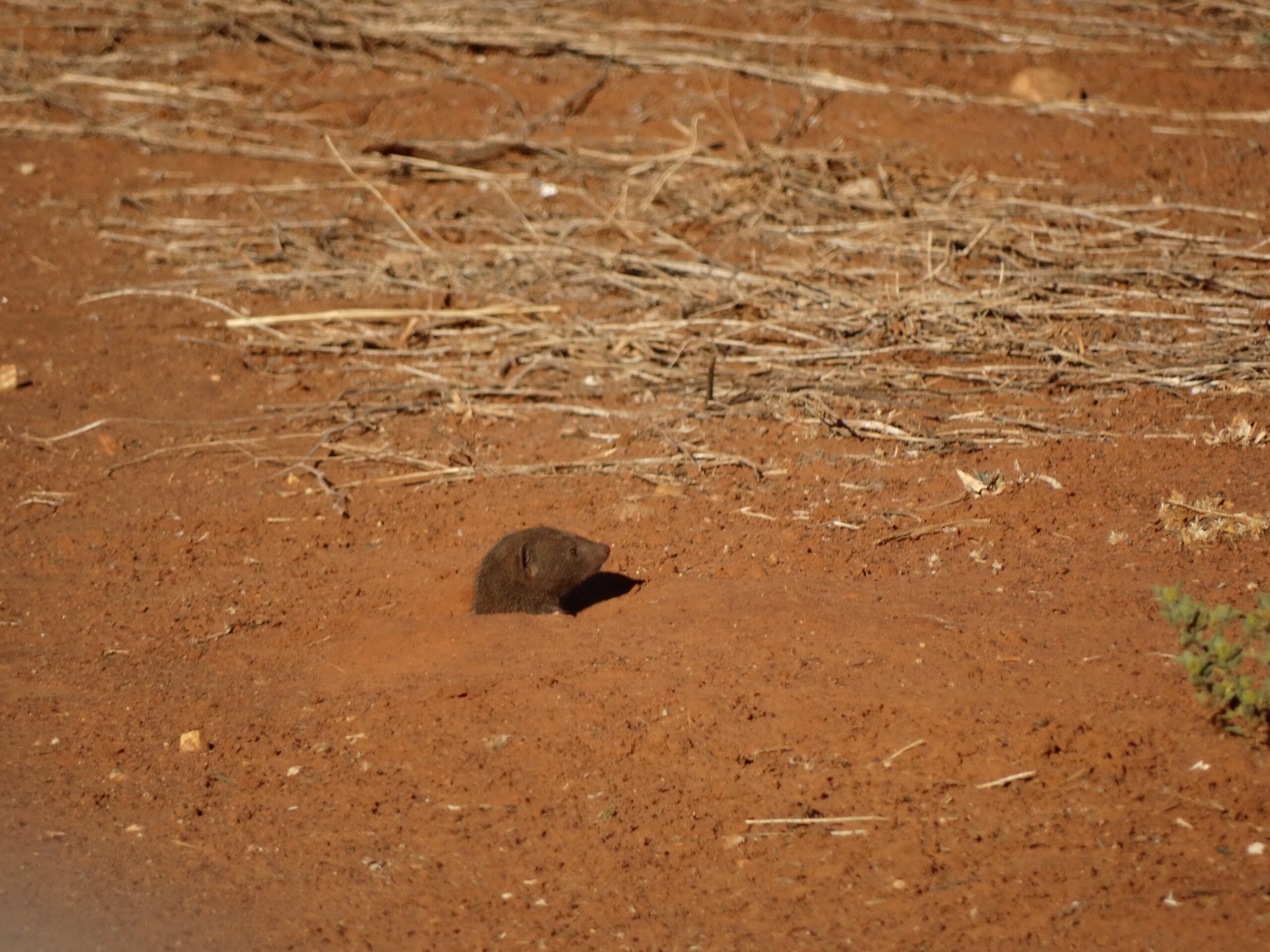
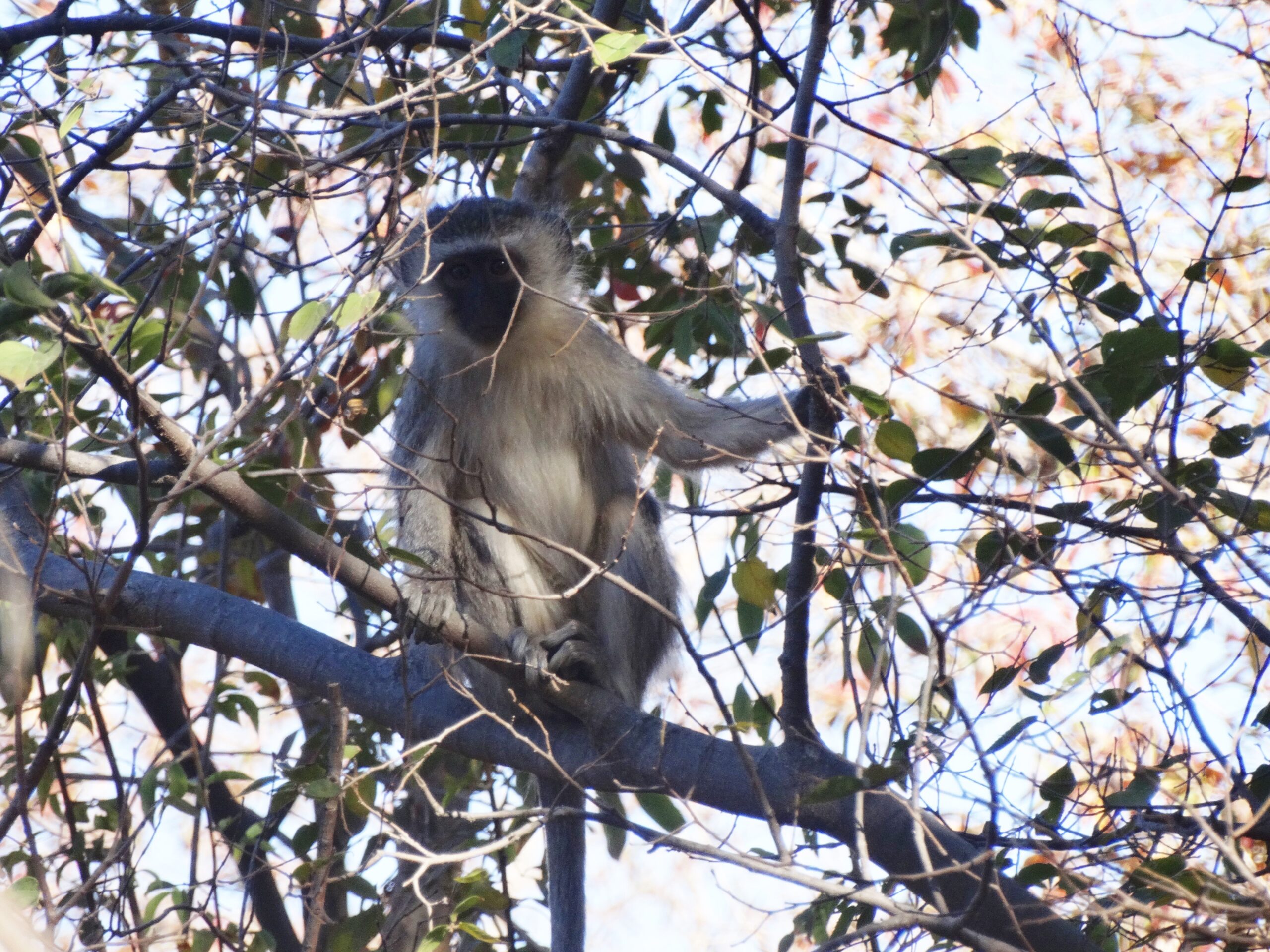
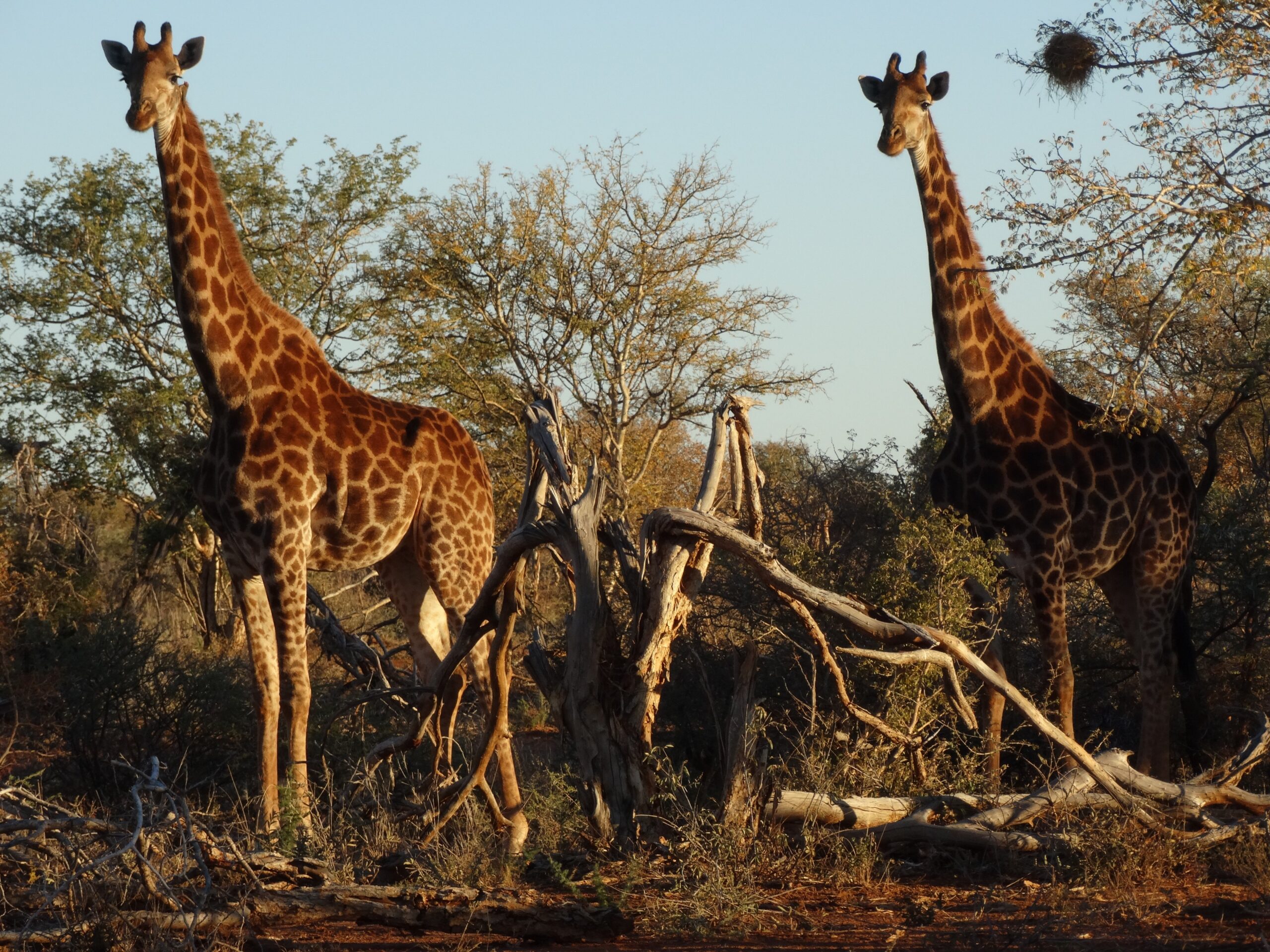
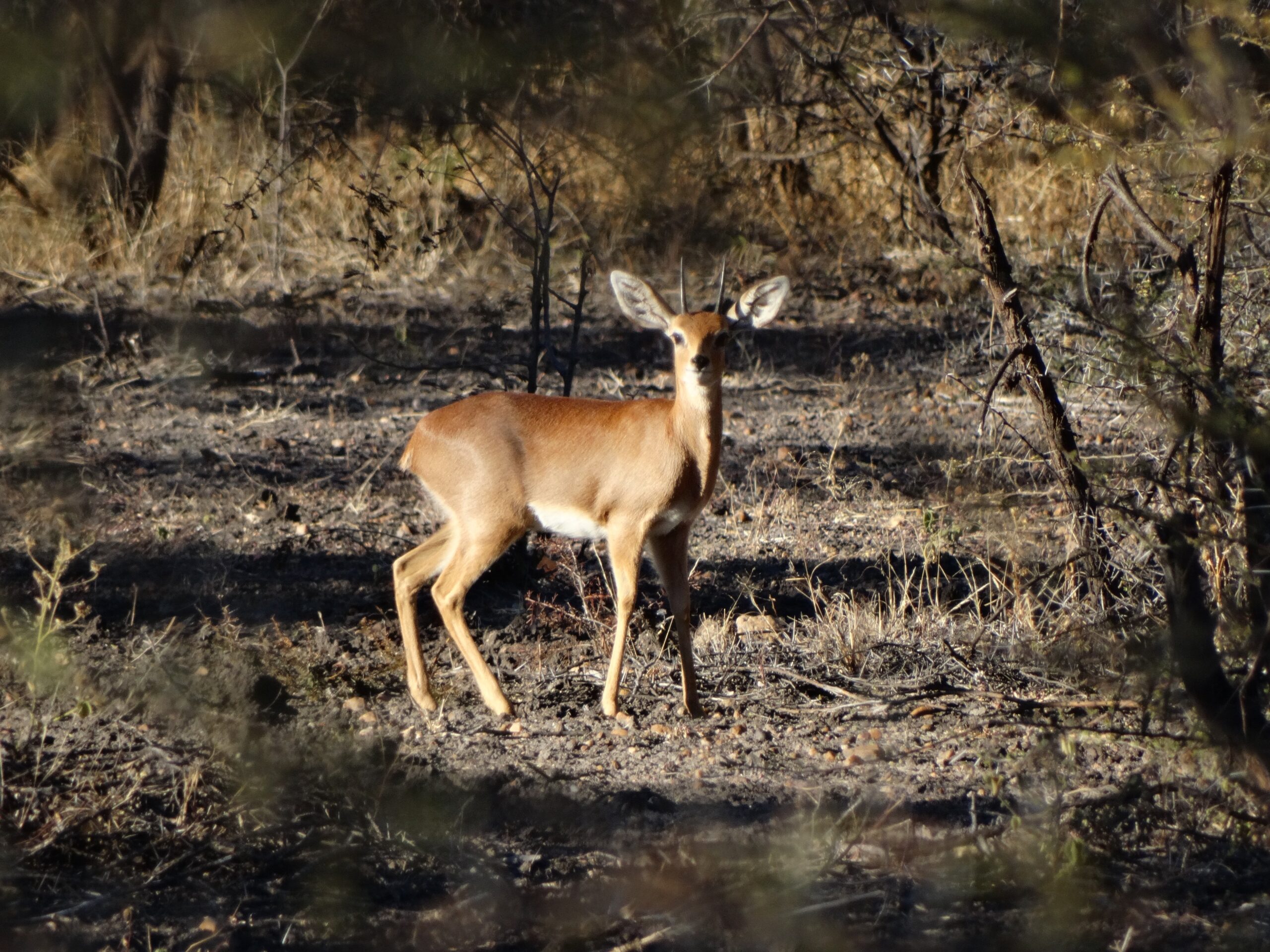

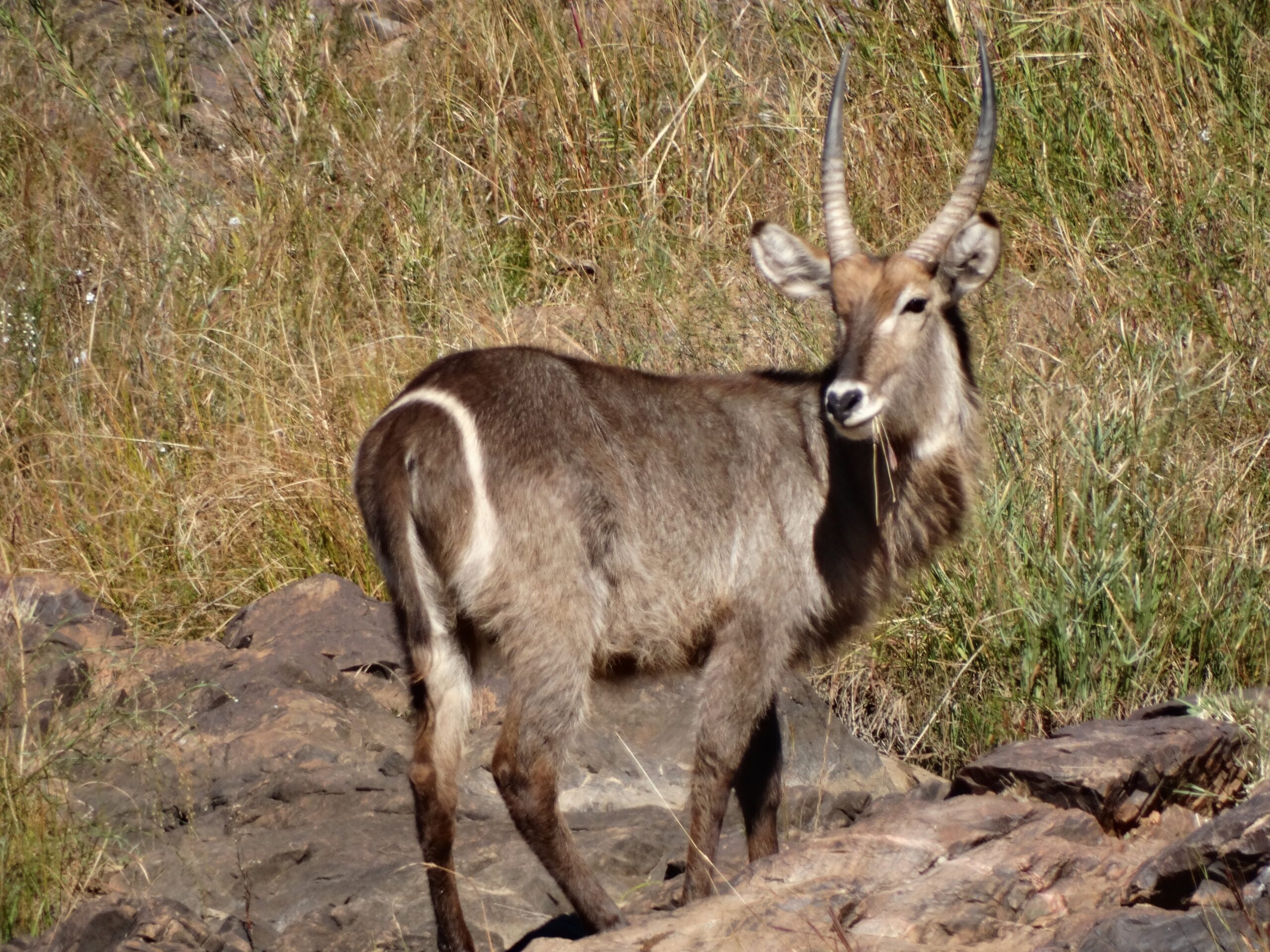
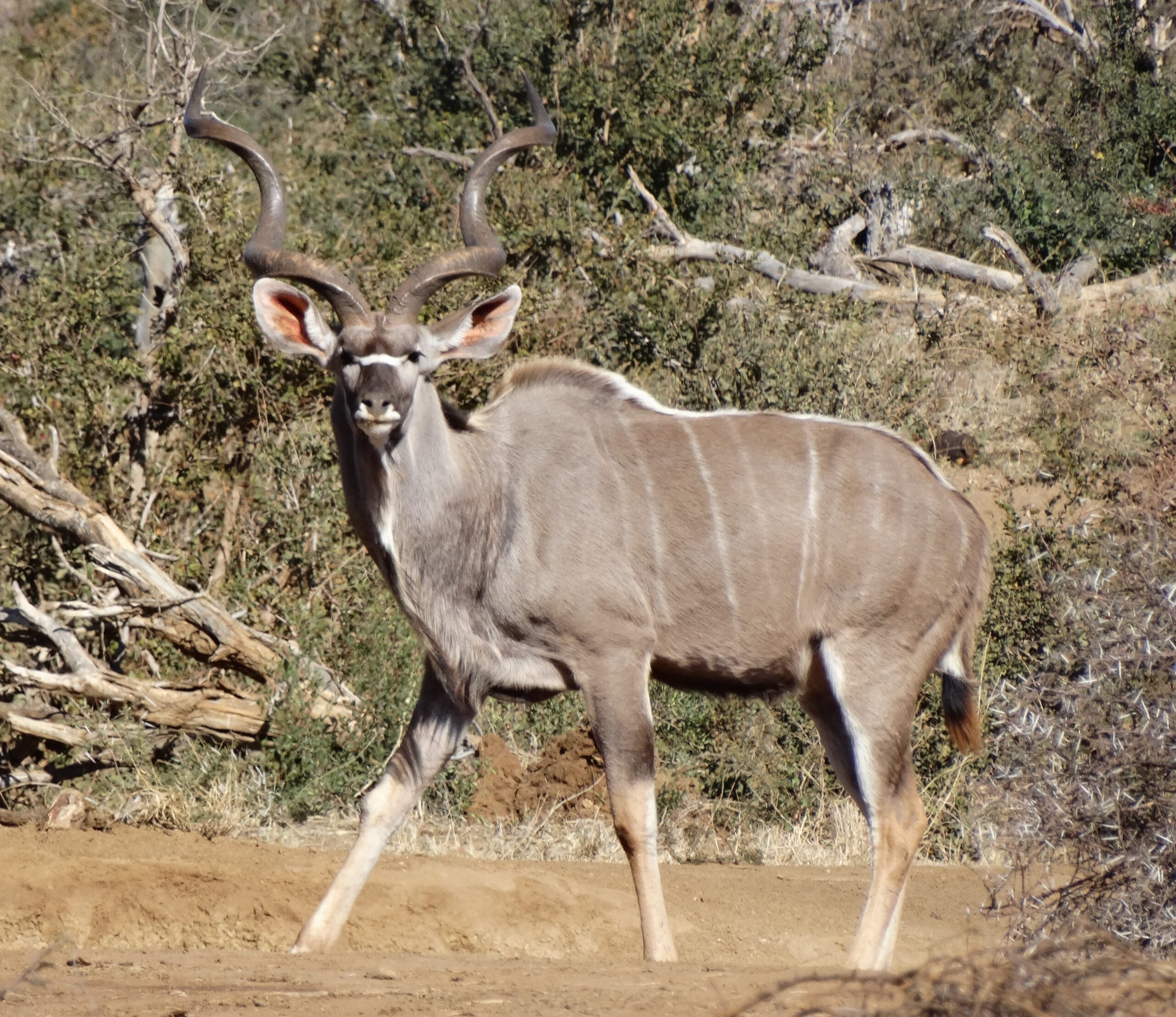
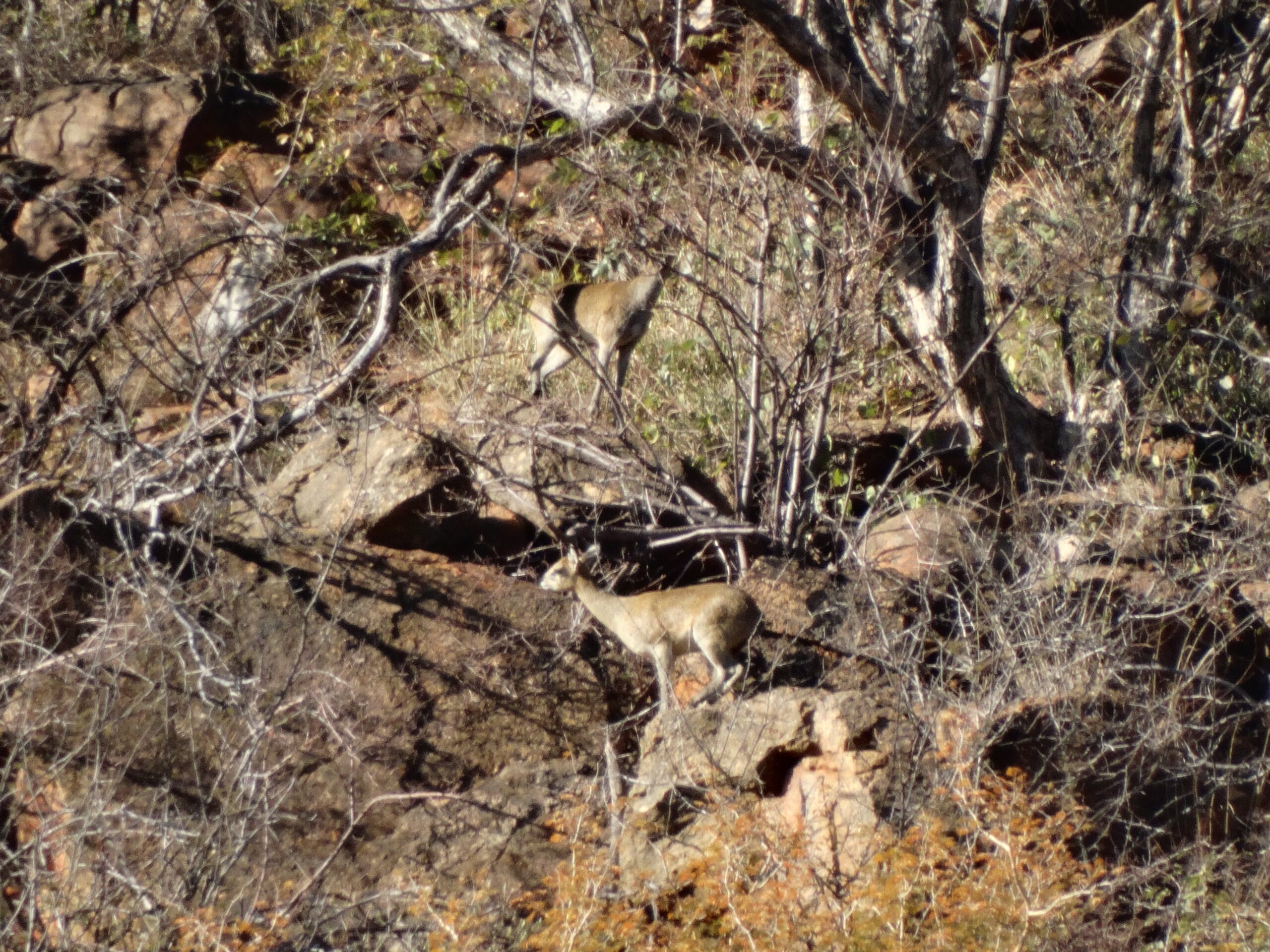
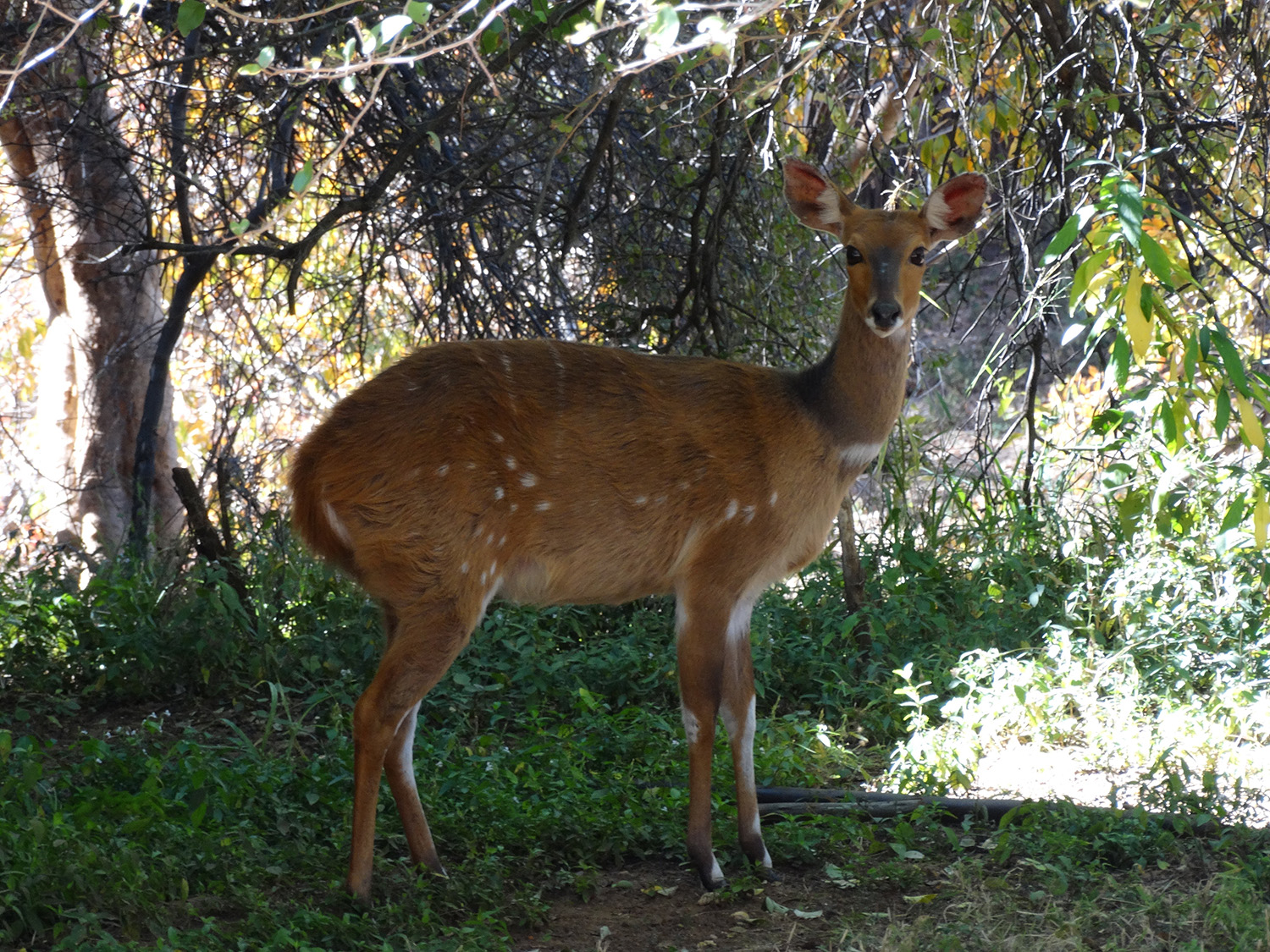
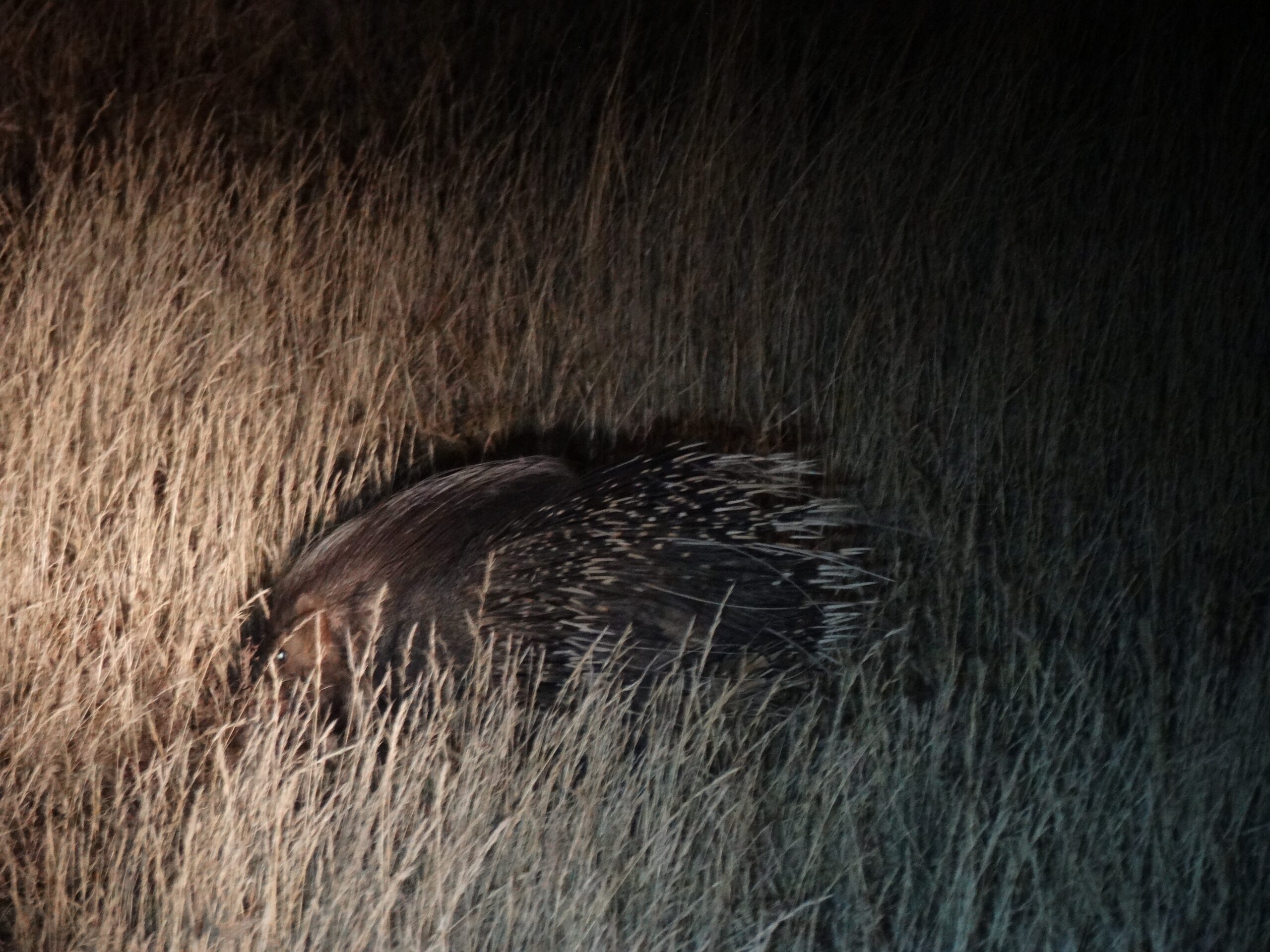
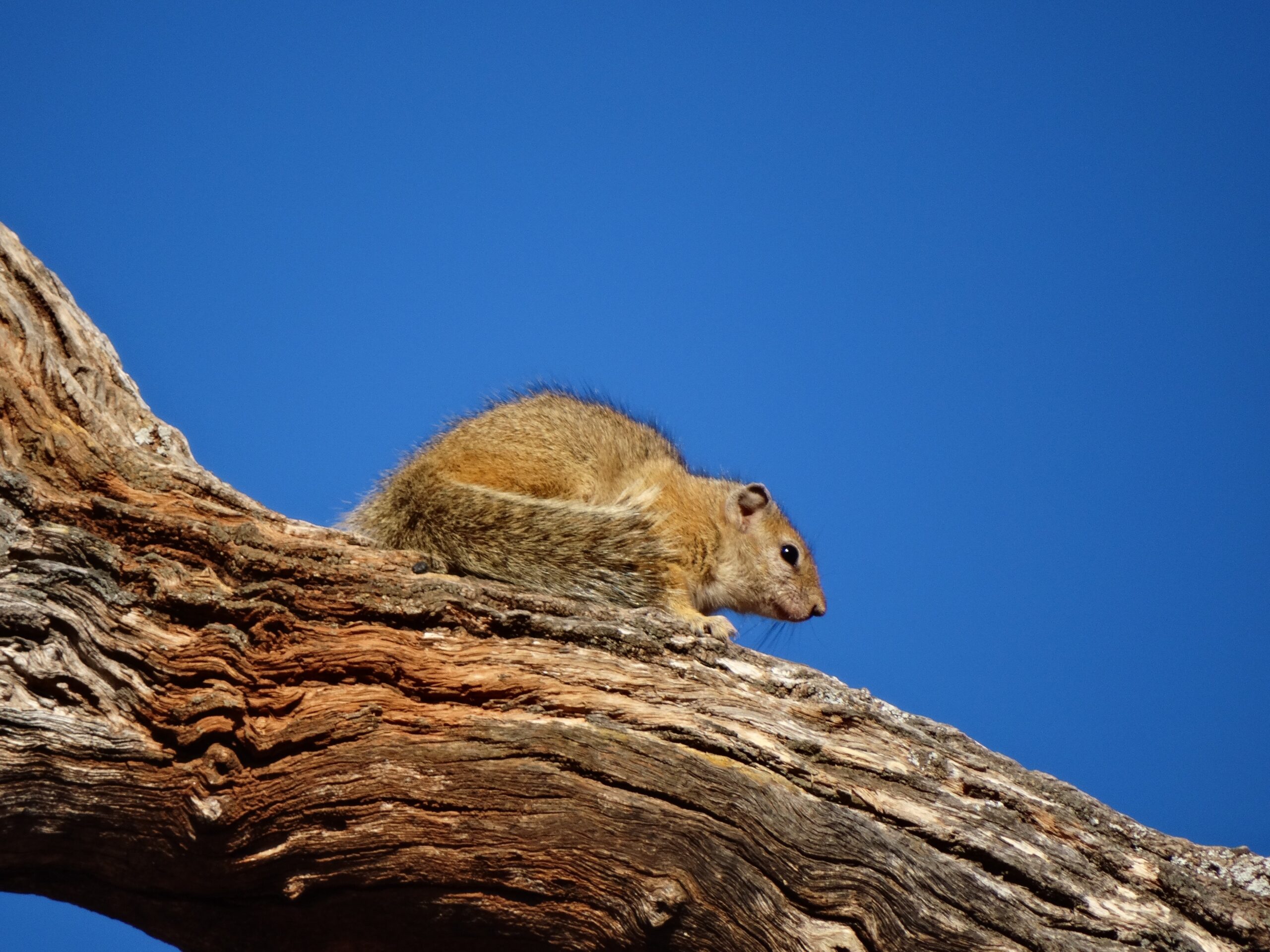
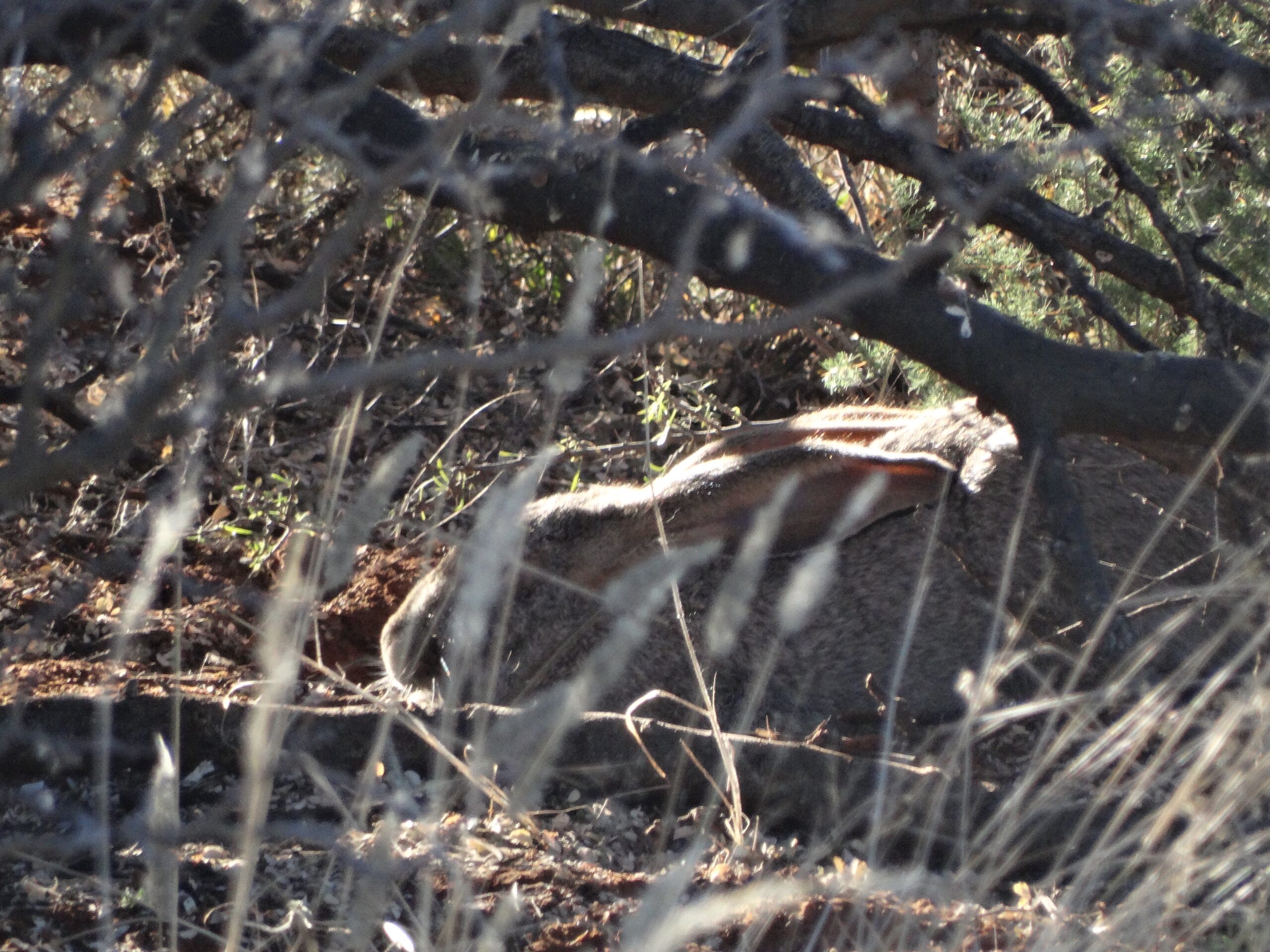
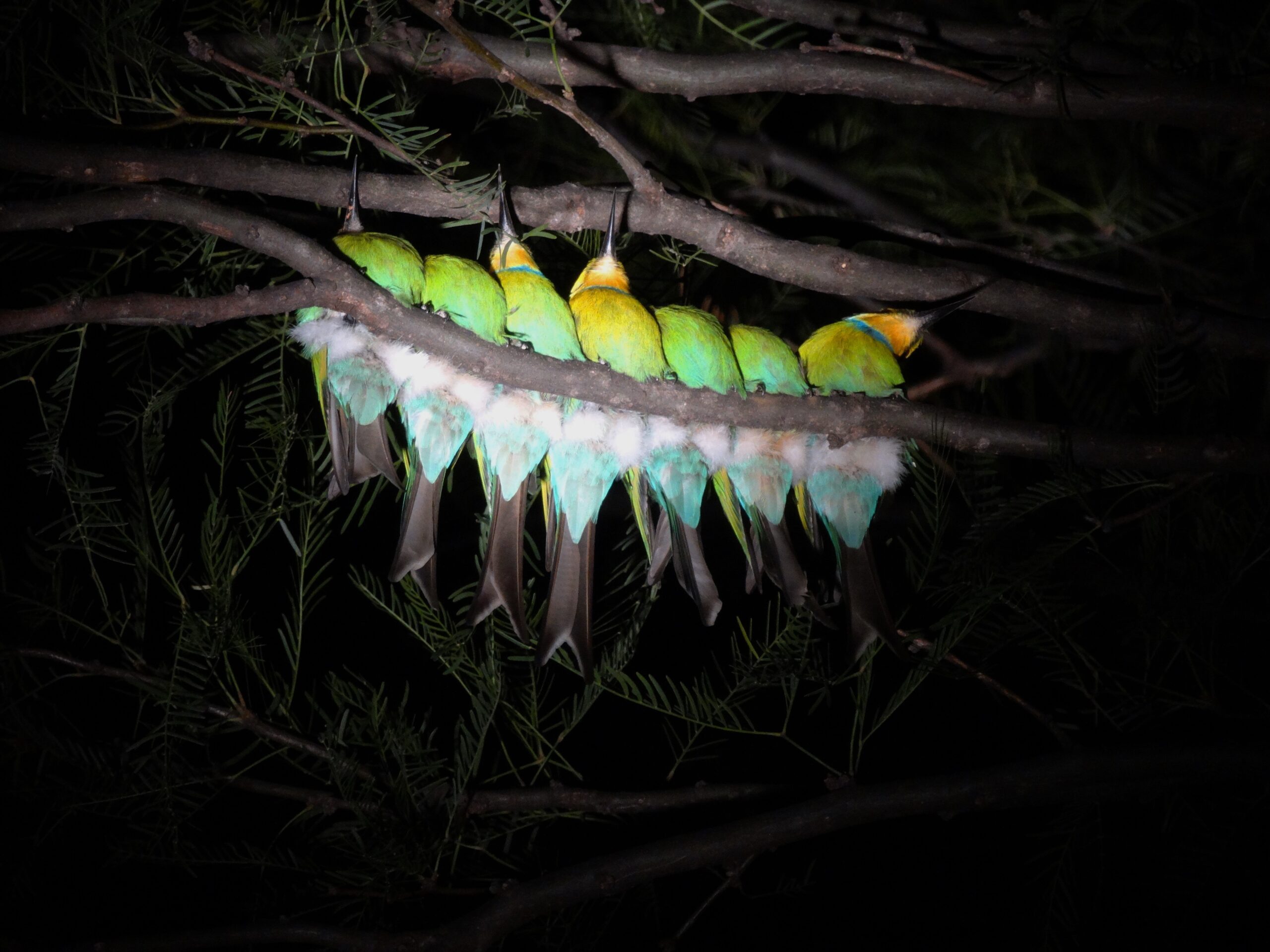
































Ask About This Tour
If you have any questions about this tour, please enter your details here and we will get back to you as soon as possible.
Alternatively, contact us by email or phone. We look forward to hearing from you!
- 0117 965 8333
- [email protected]
Or complete the contact form and we will endeavour to get back to you as soon as possible.
* = required field
